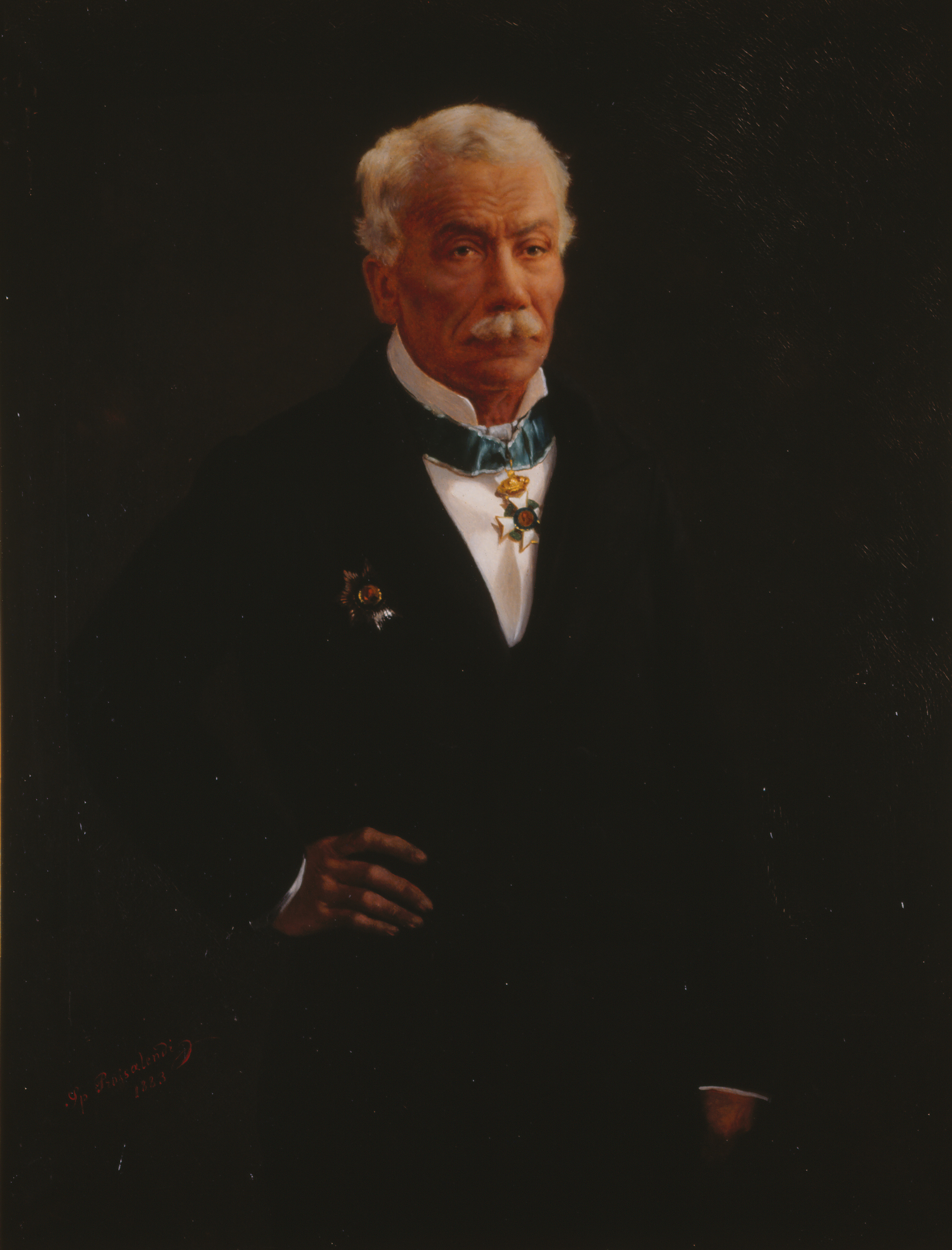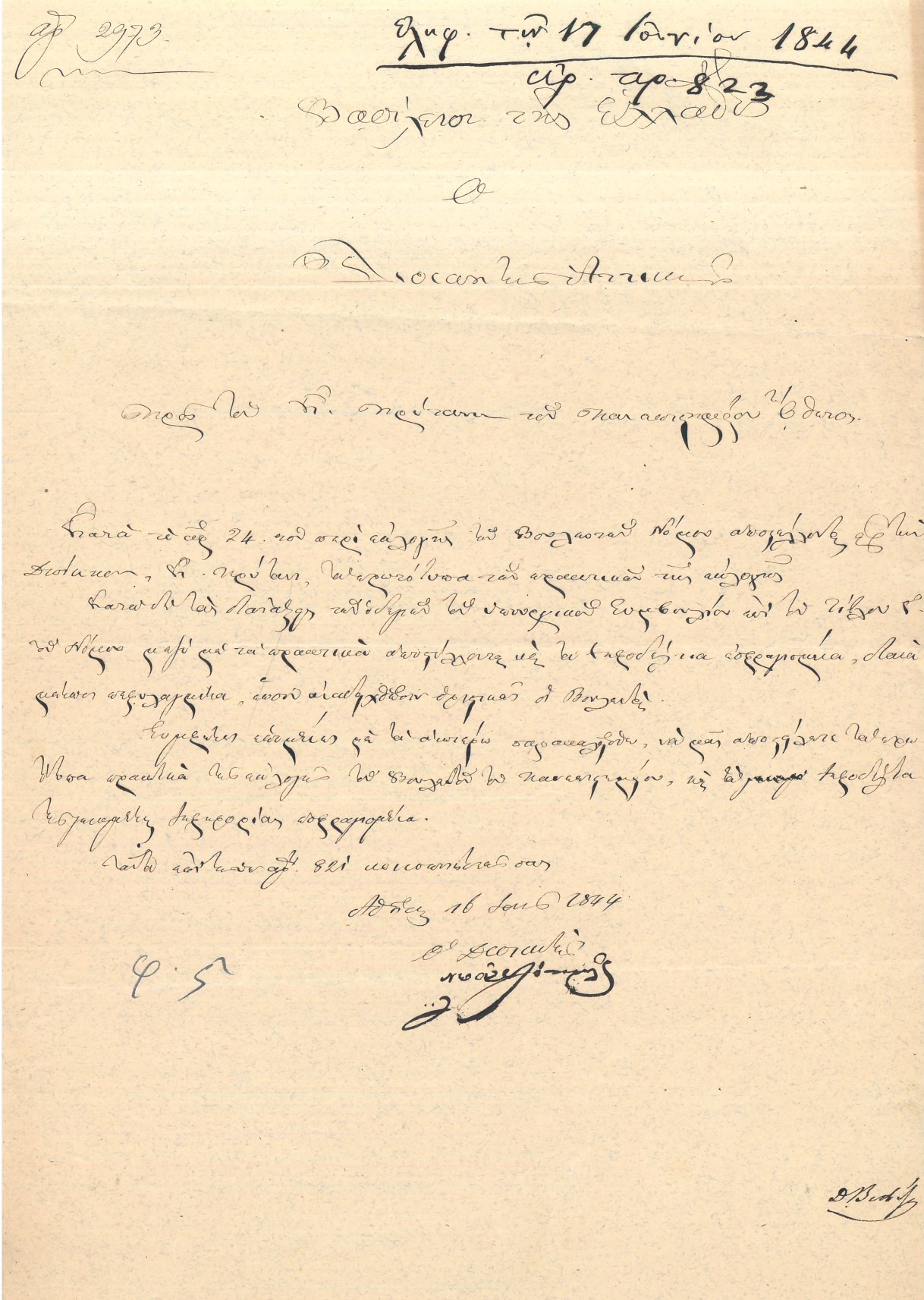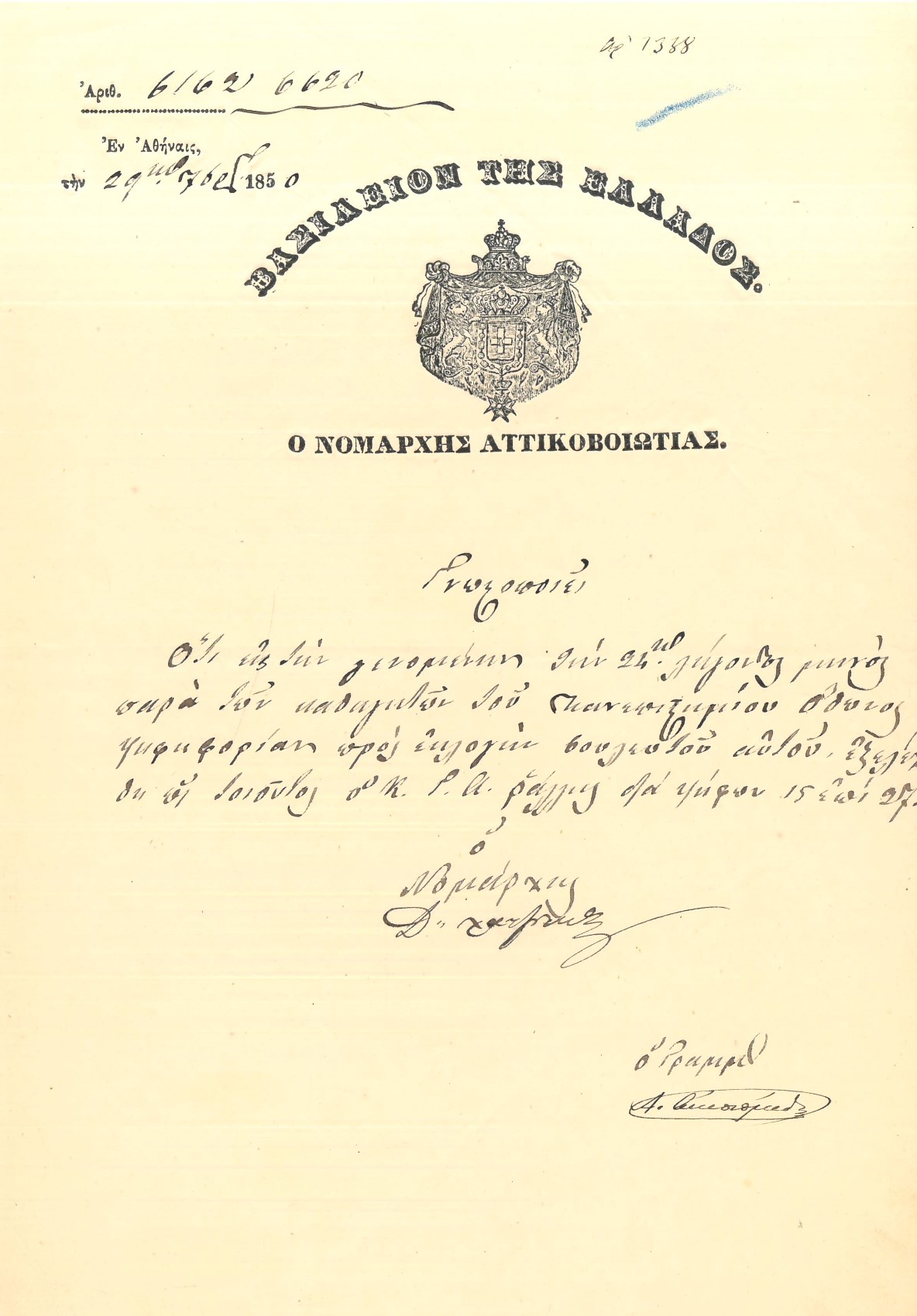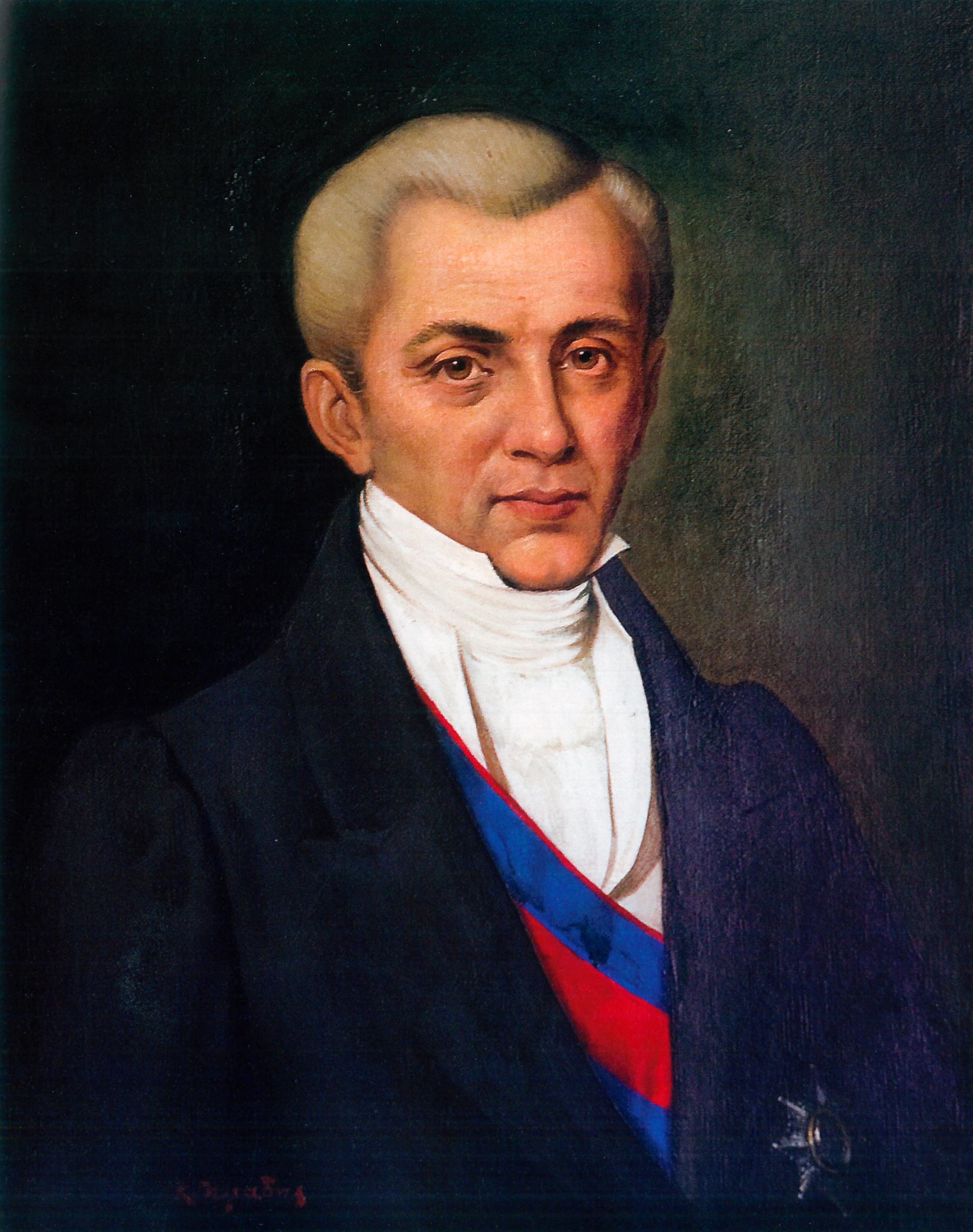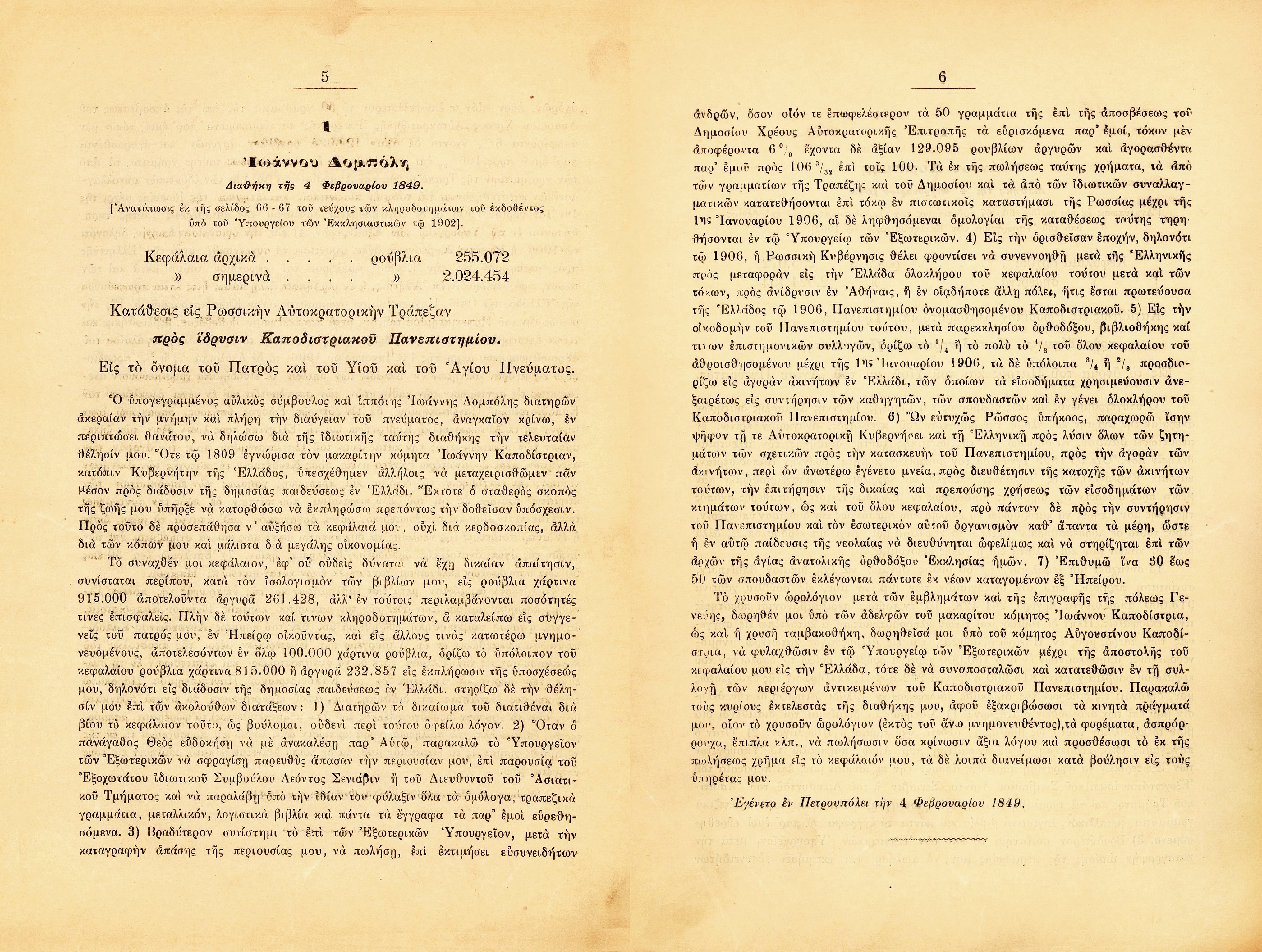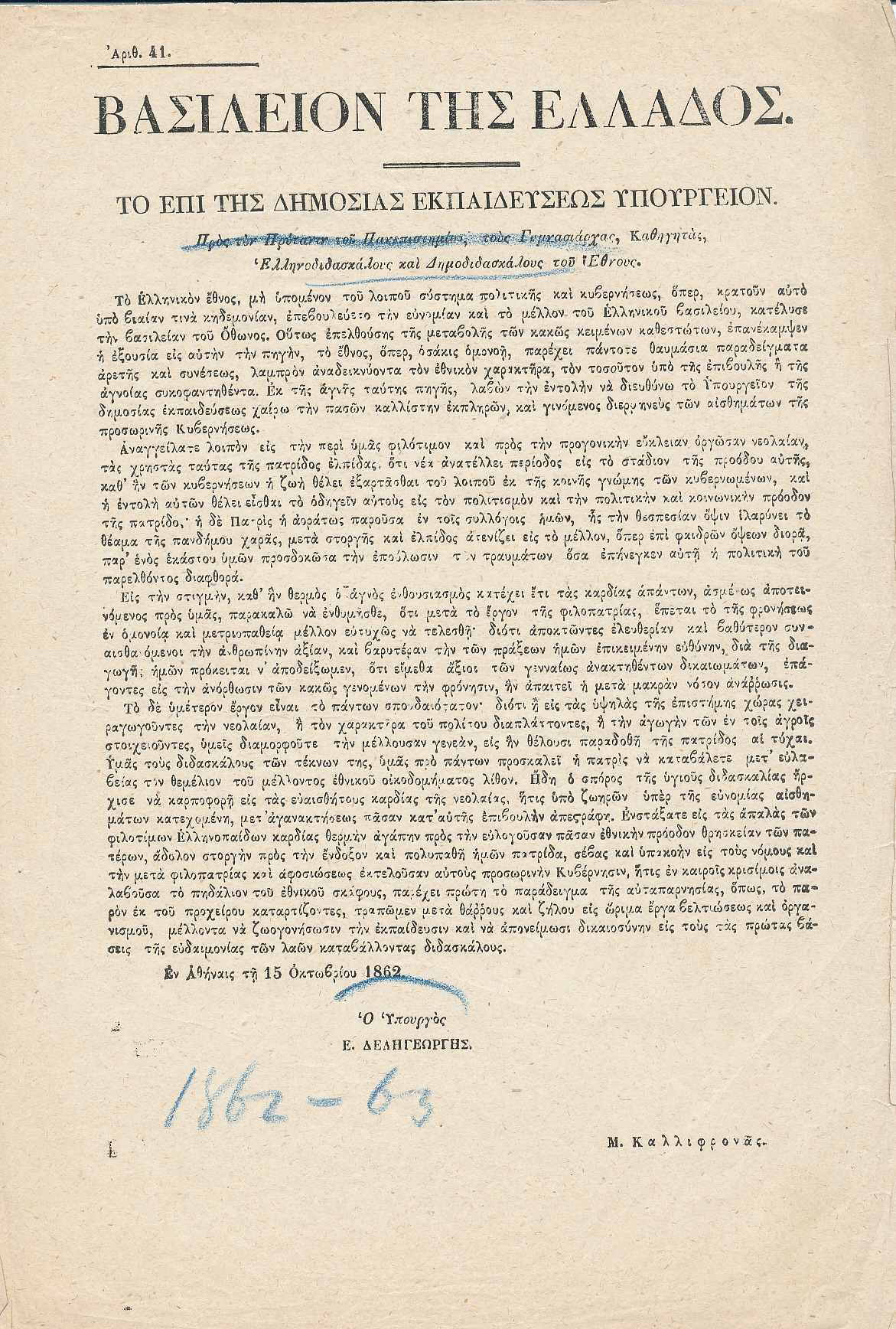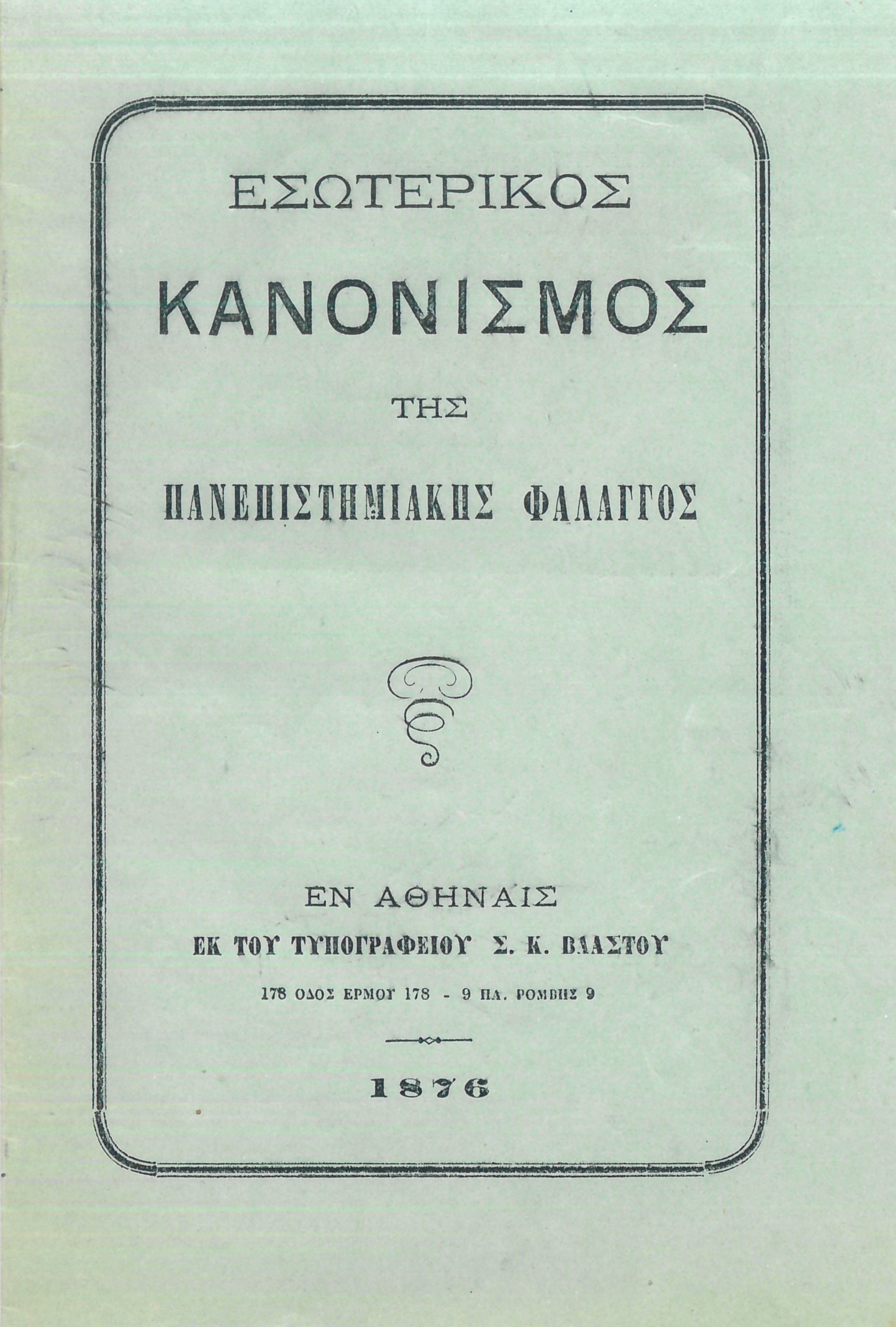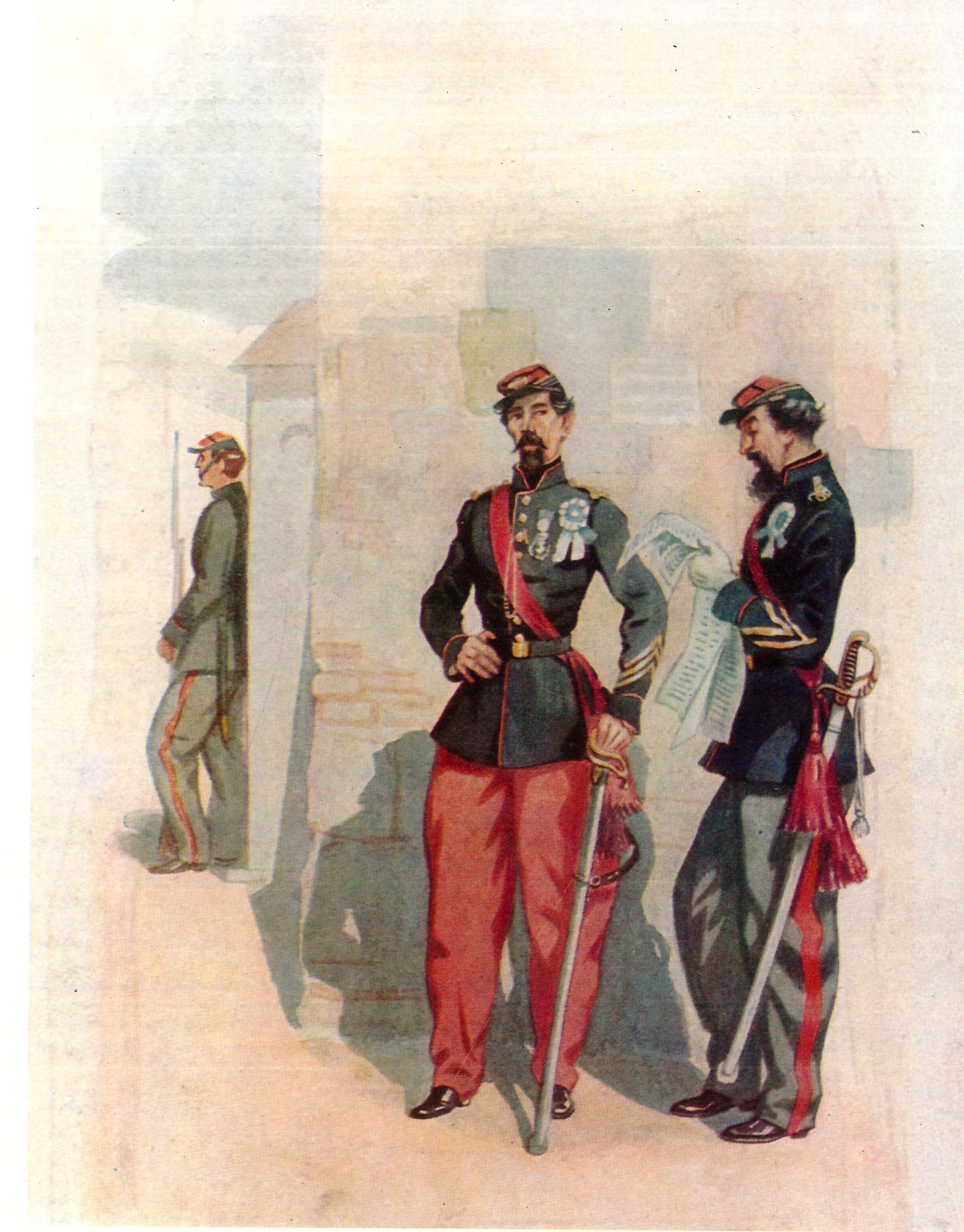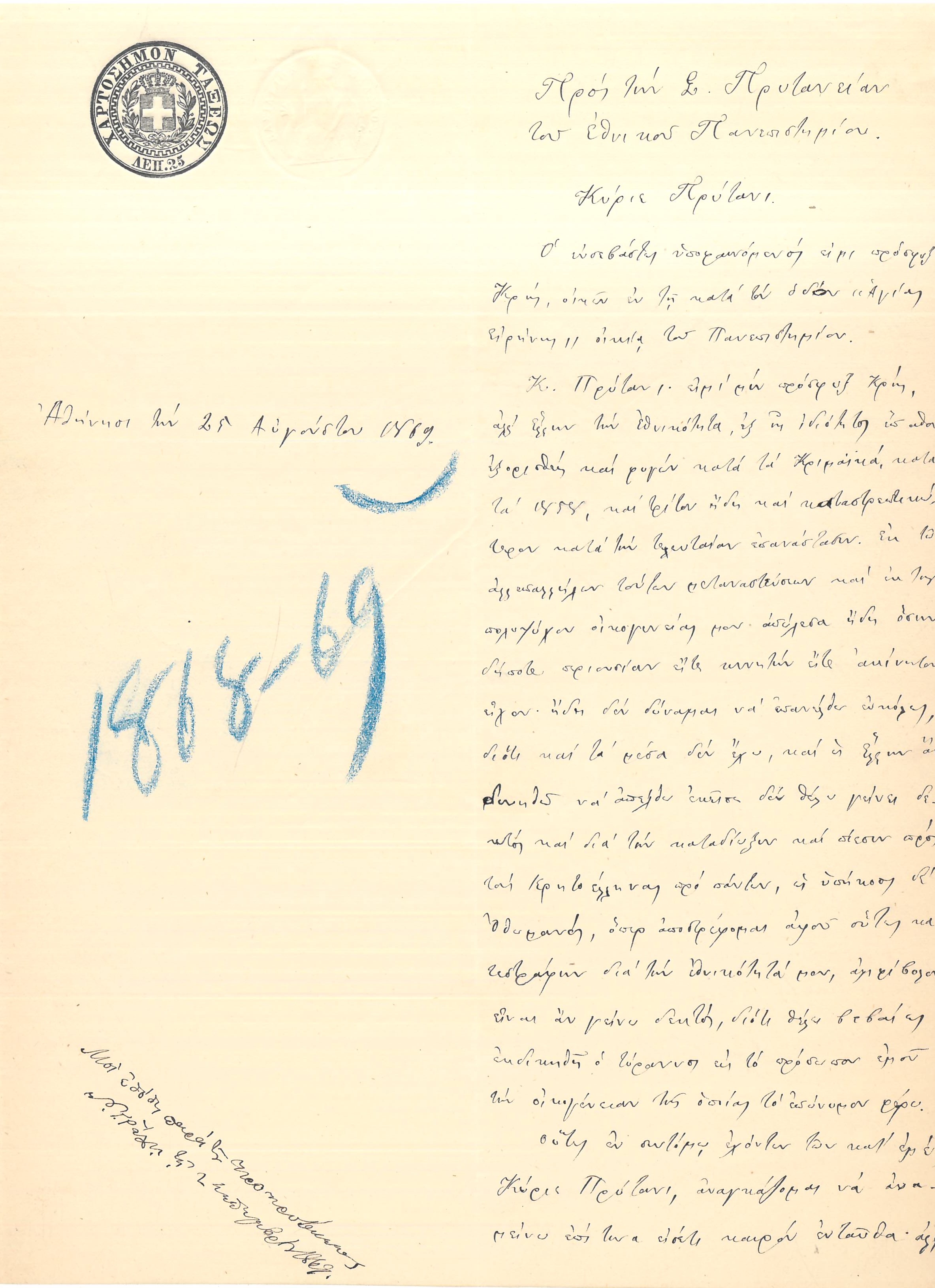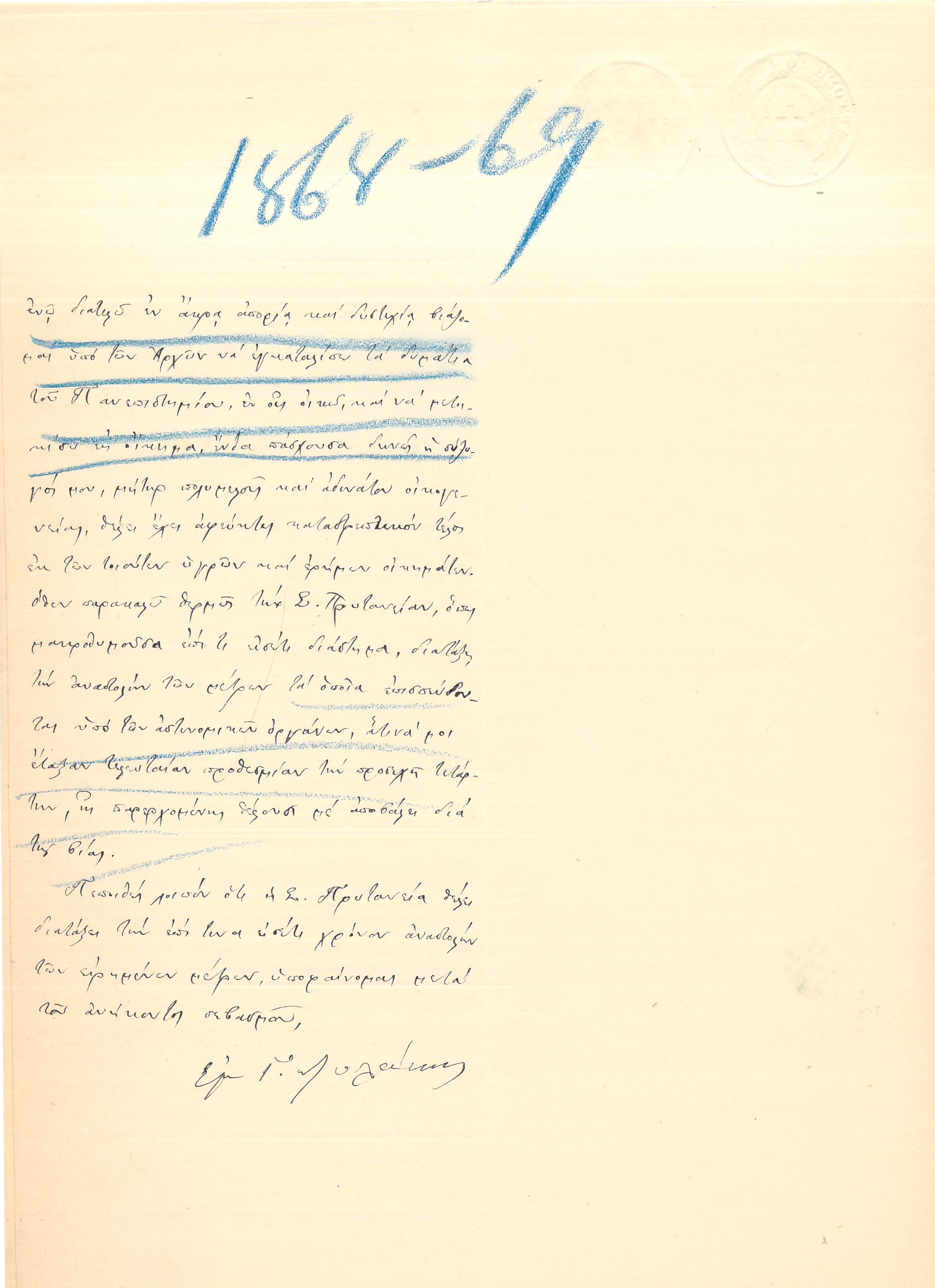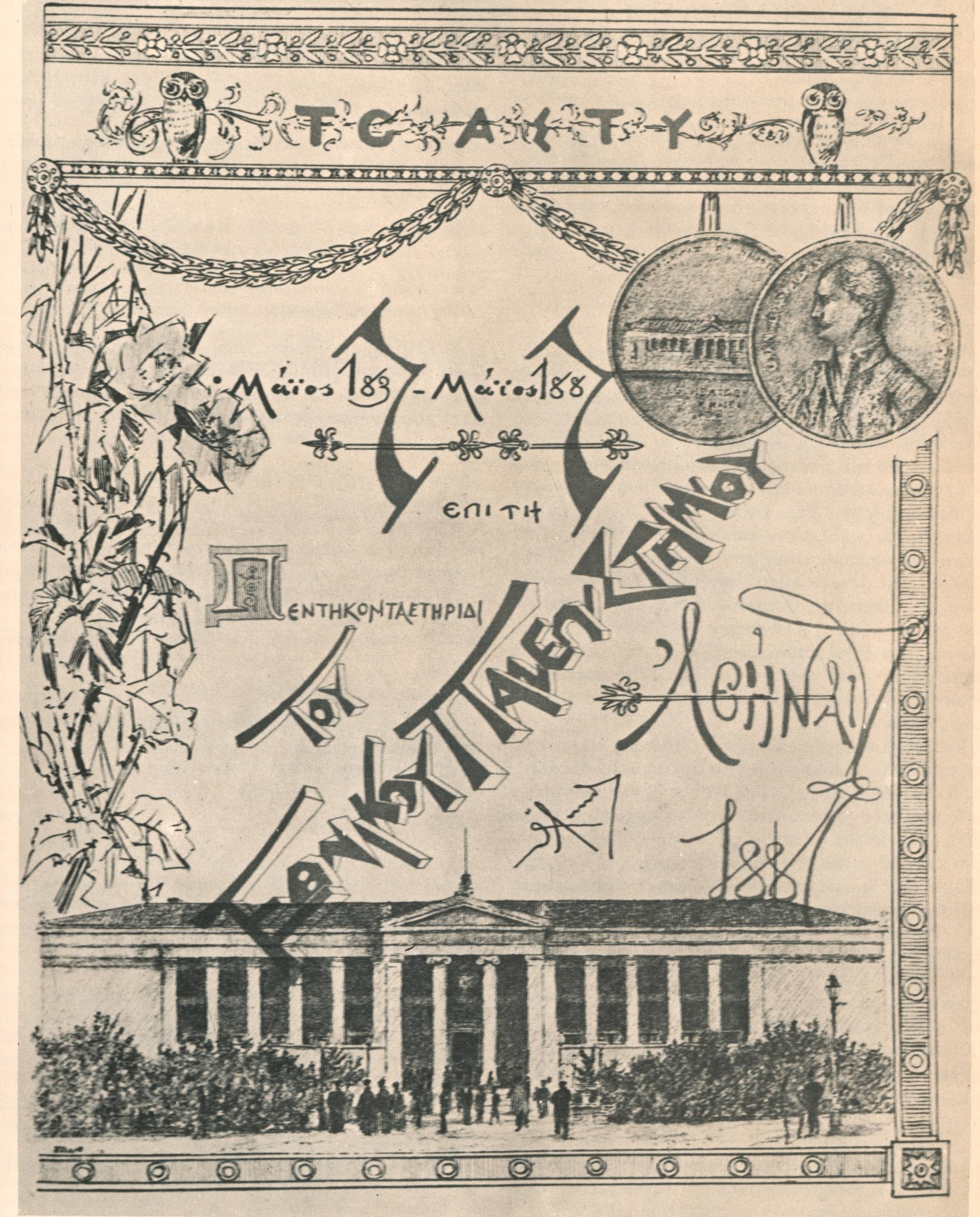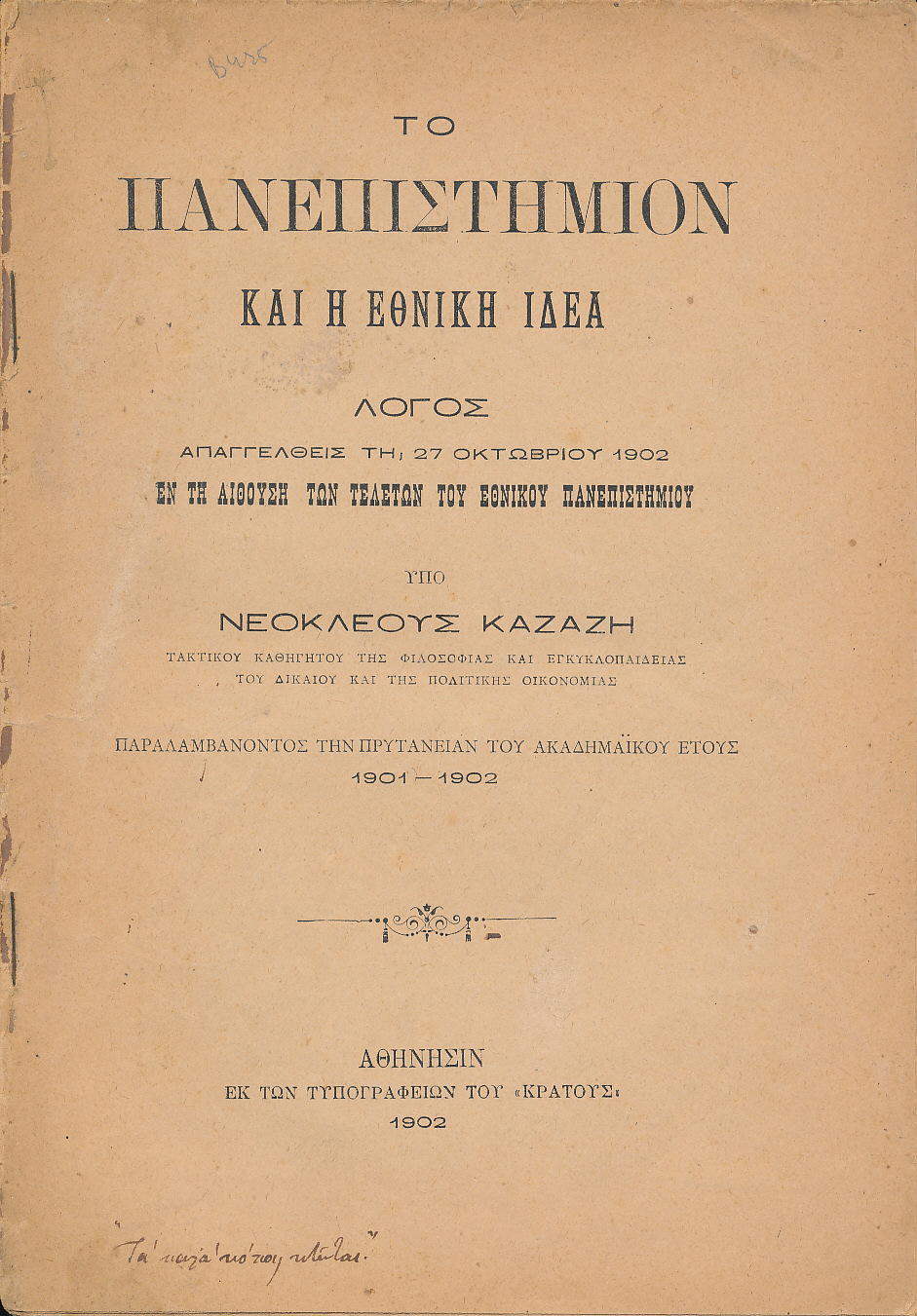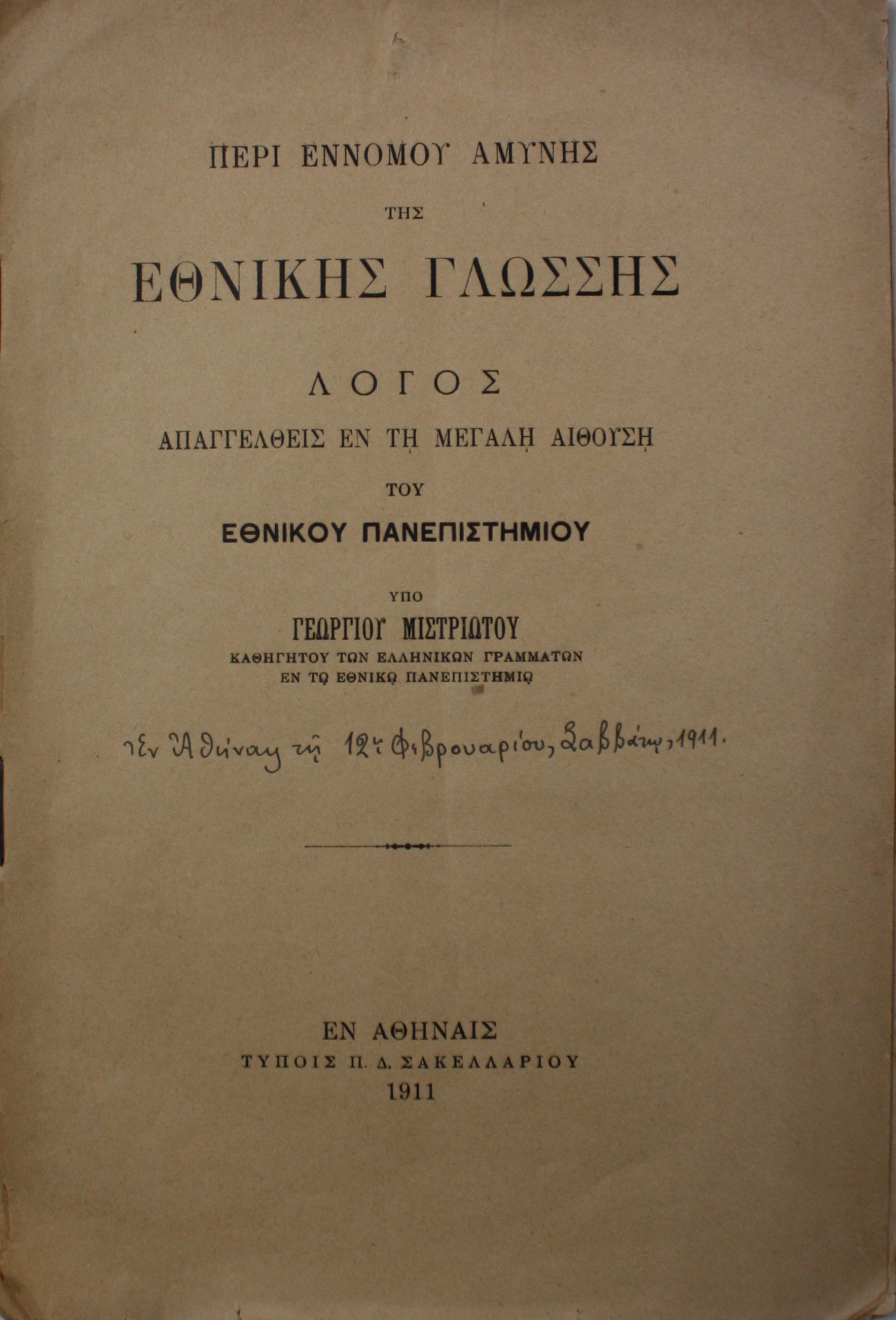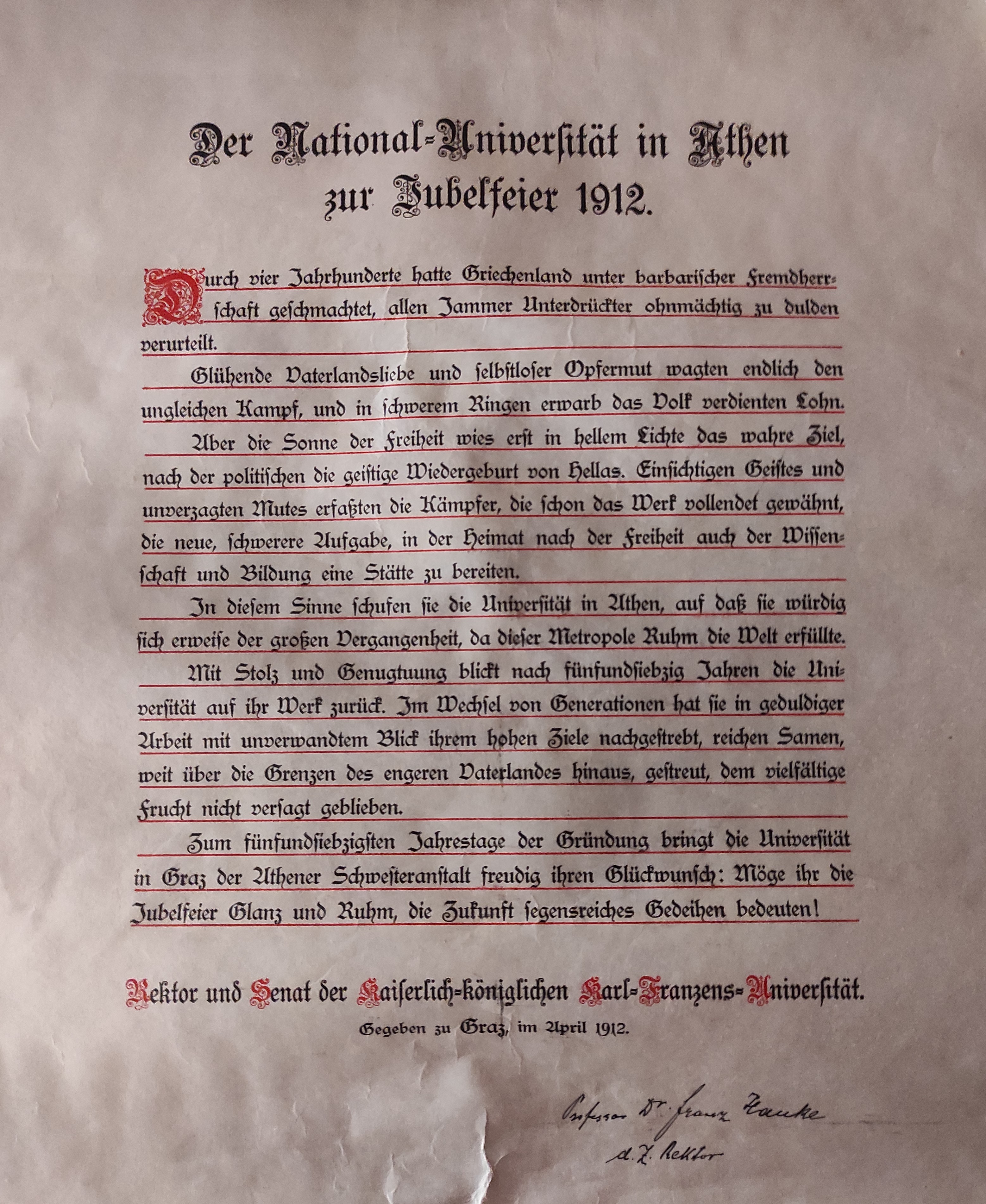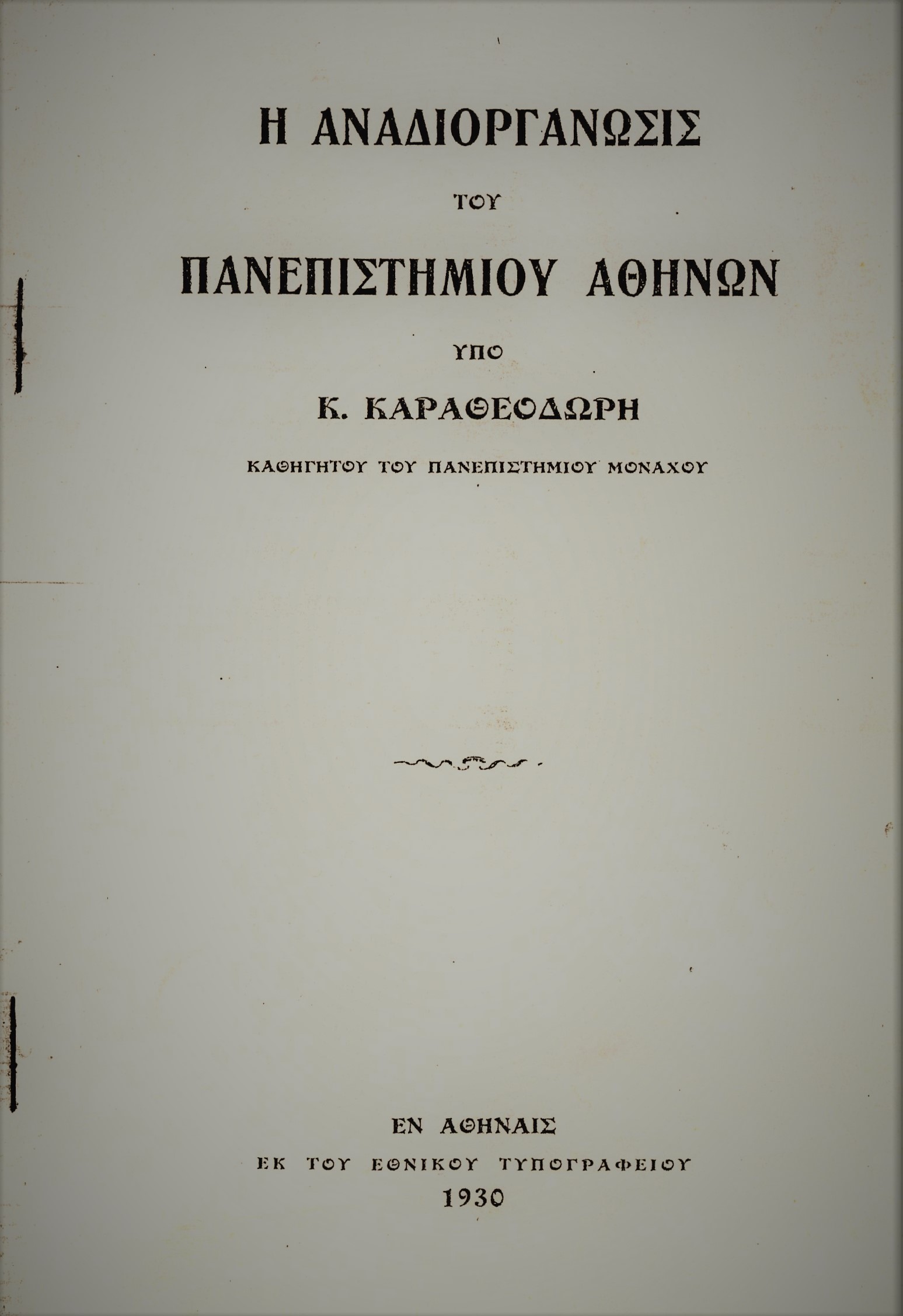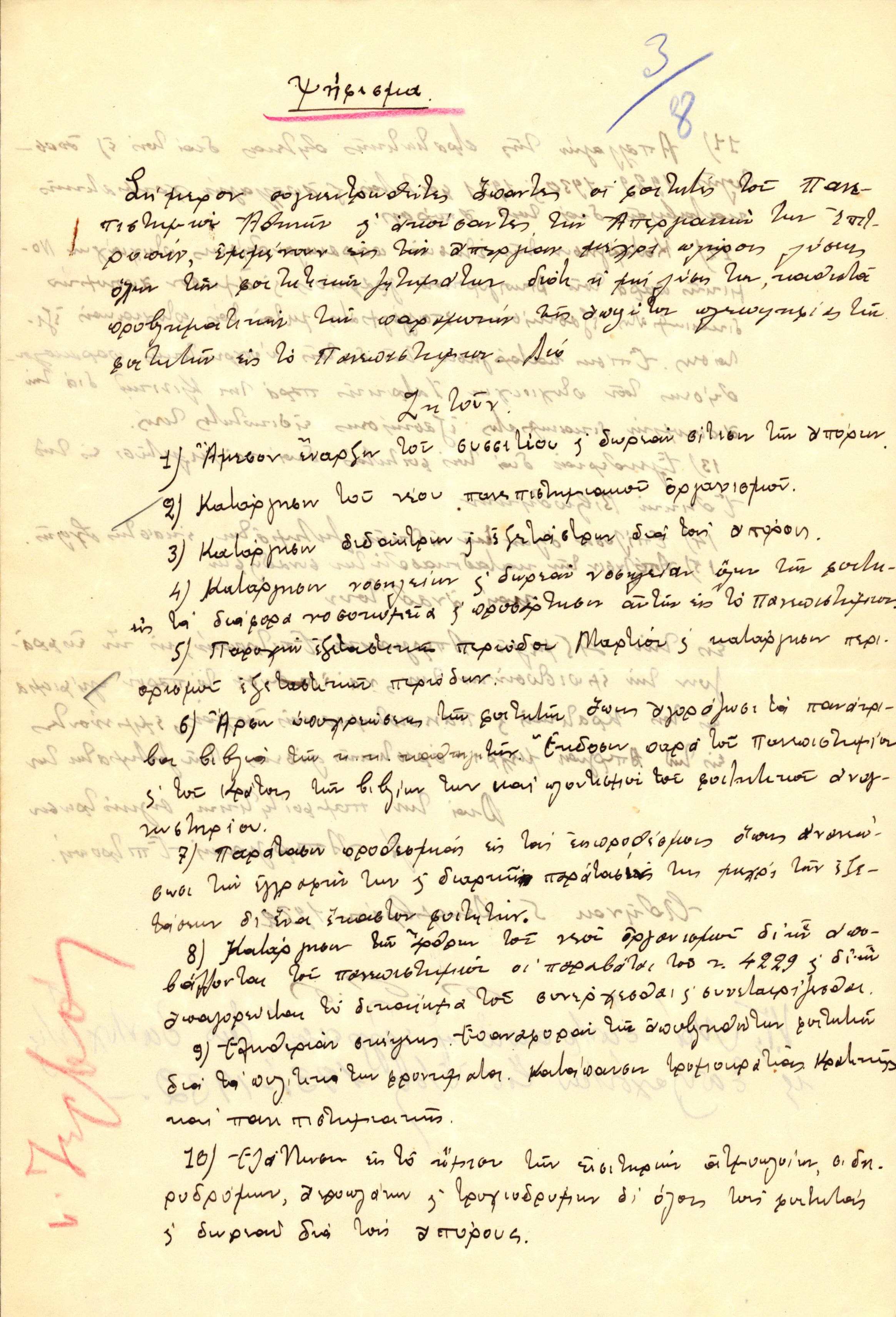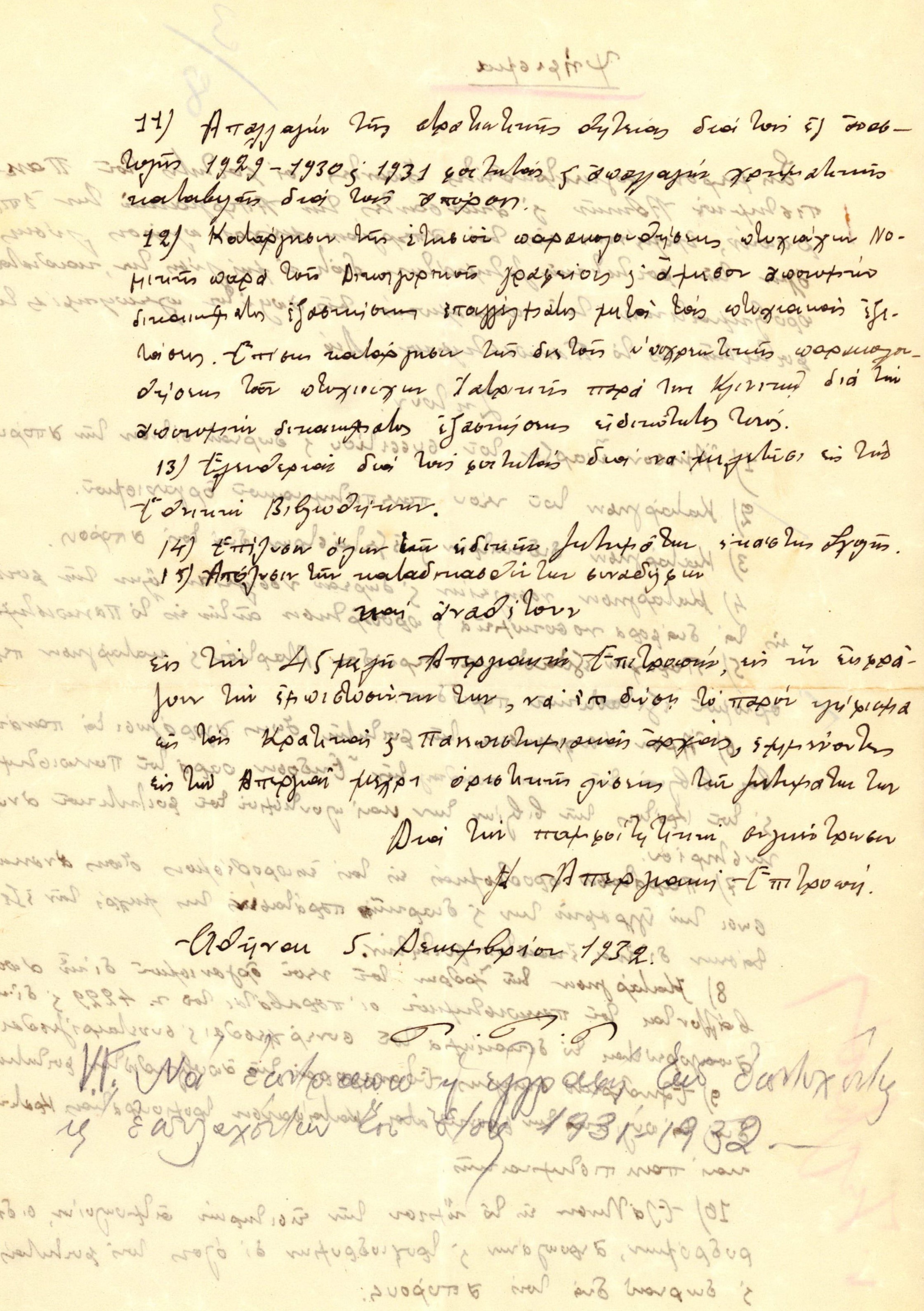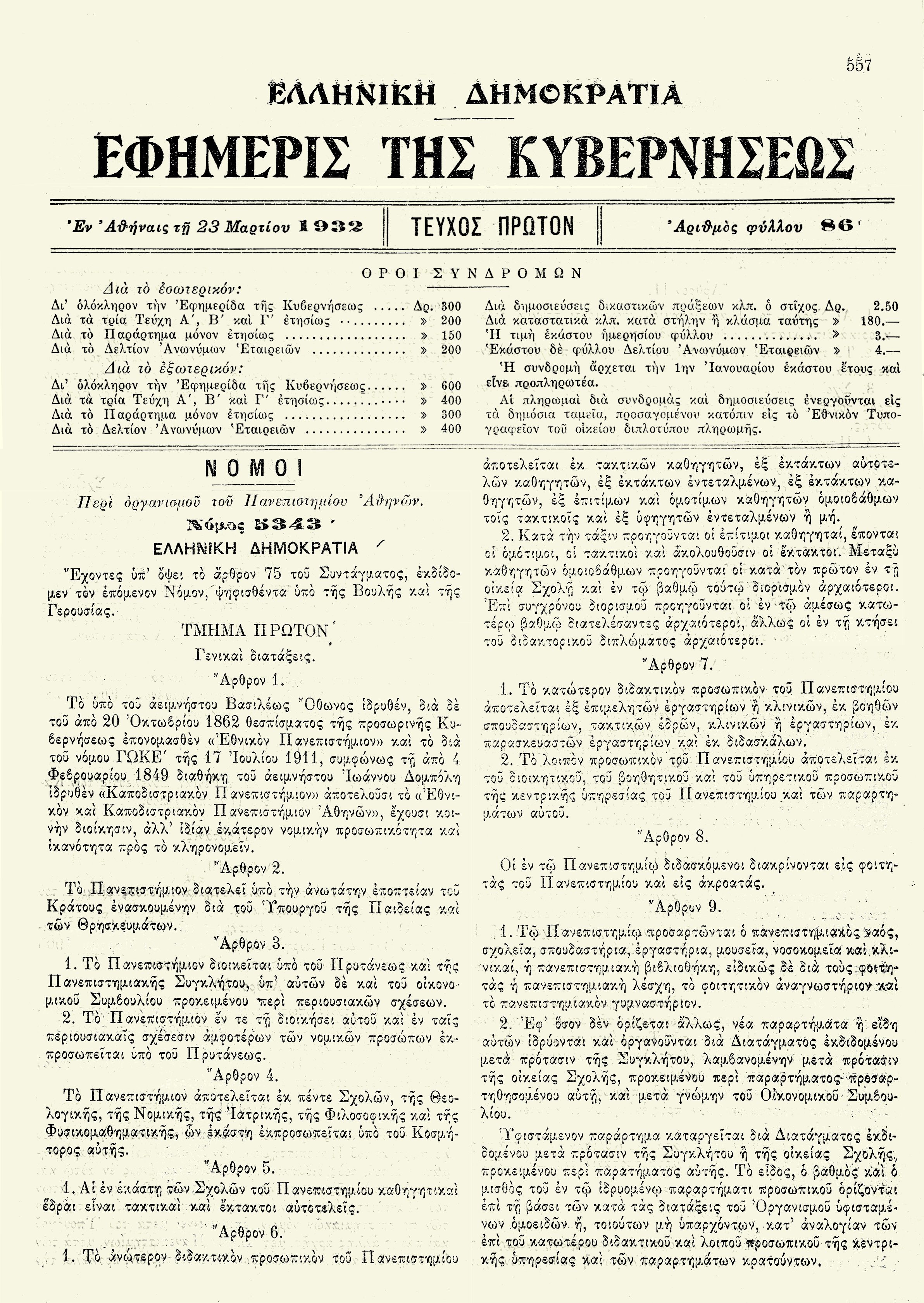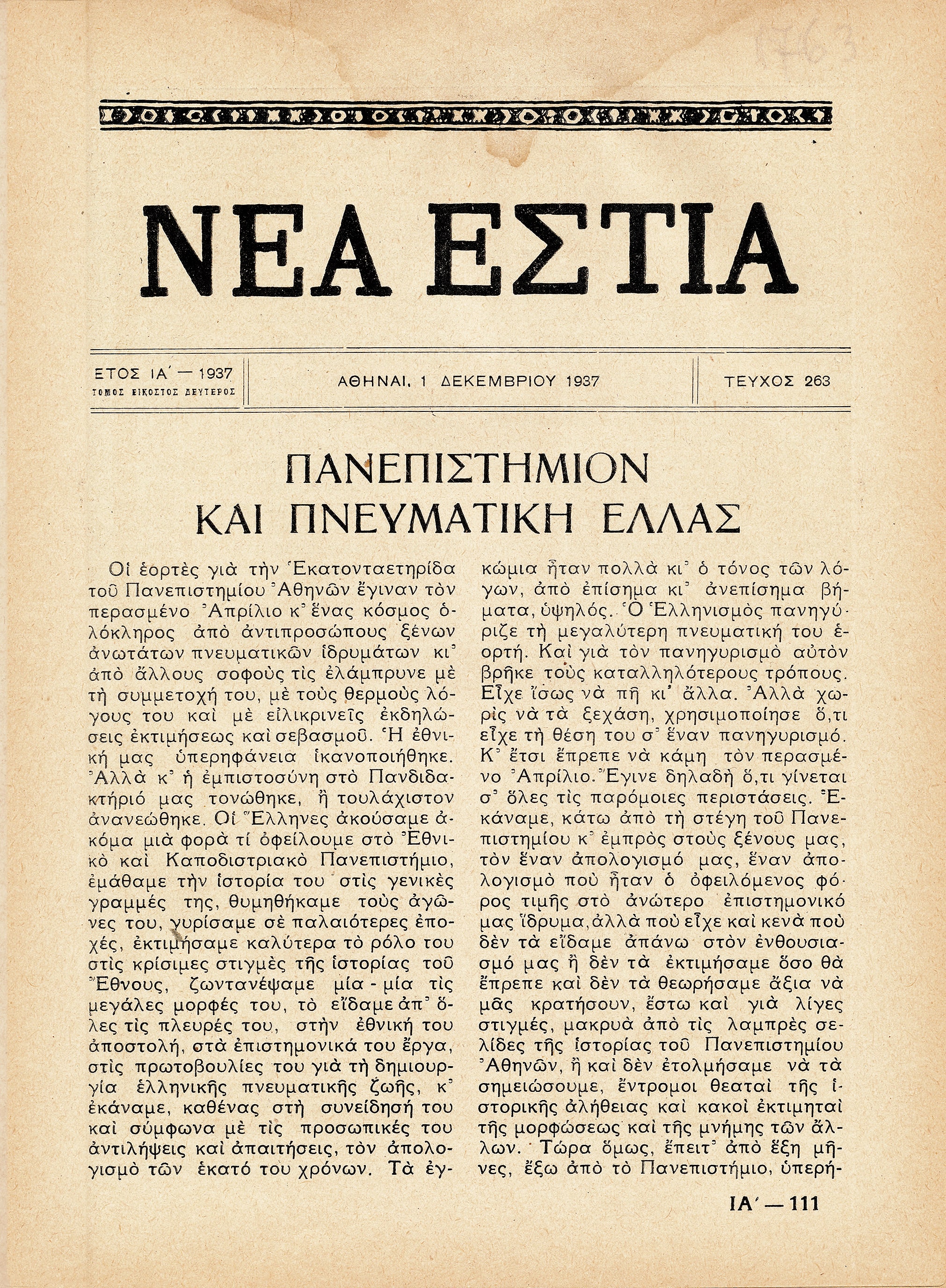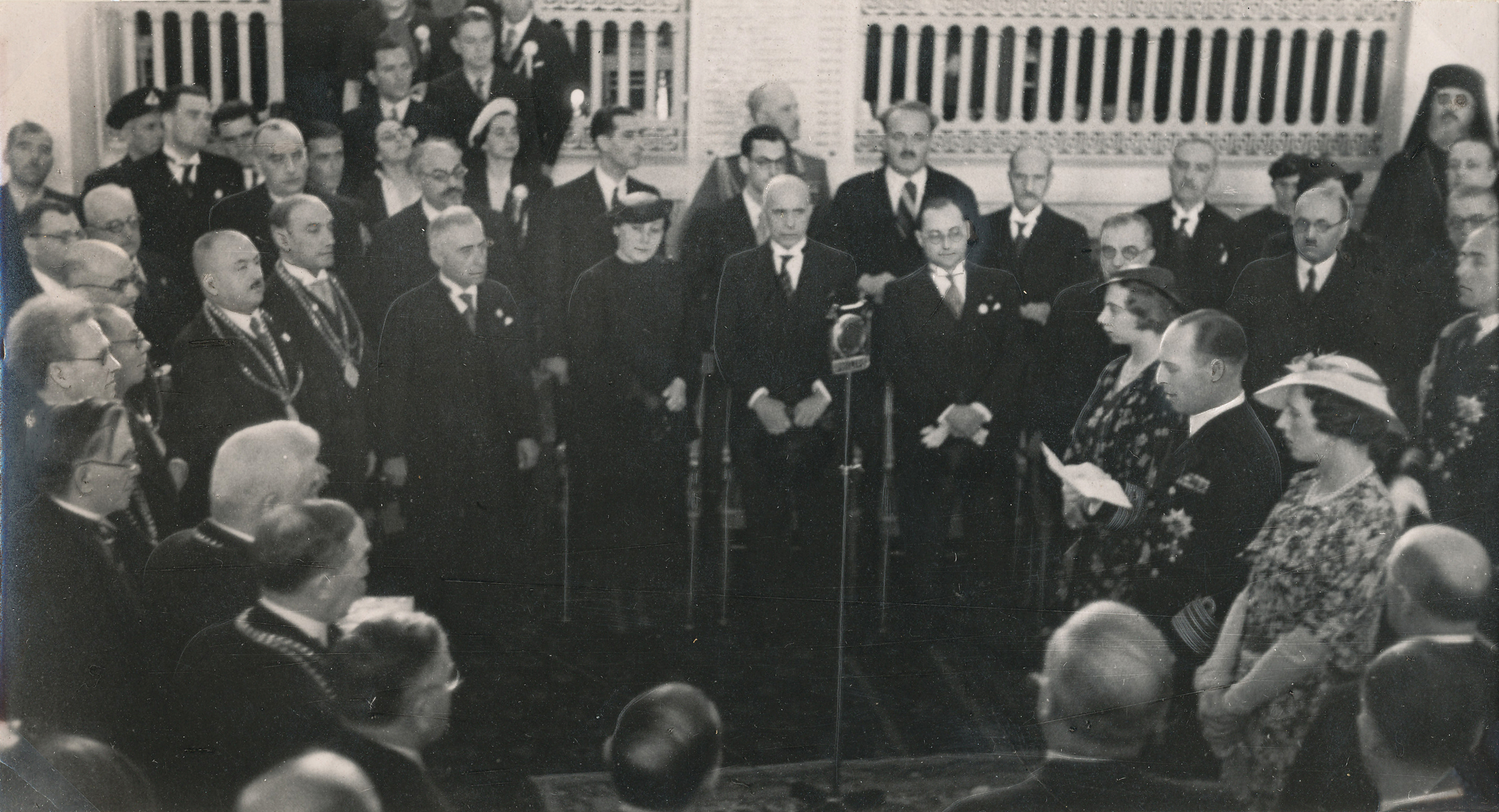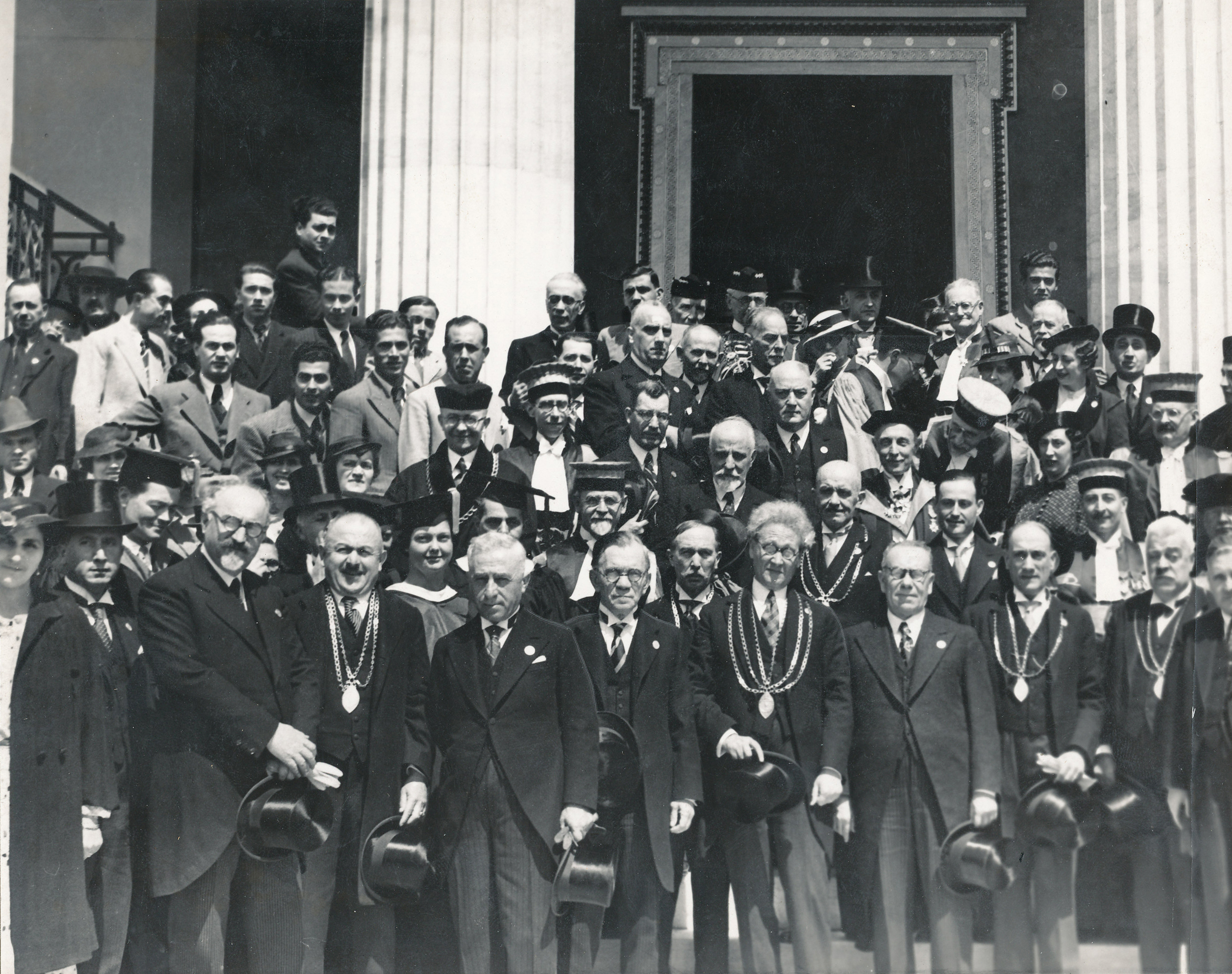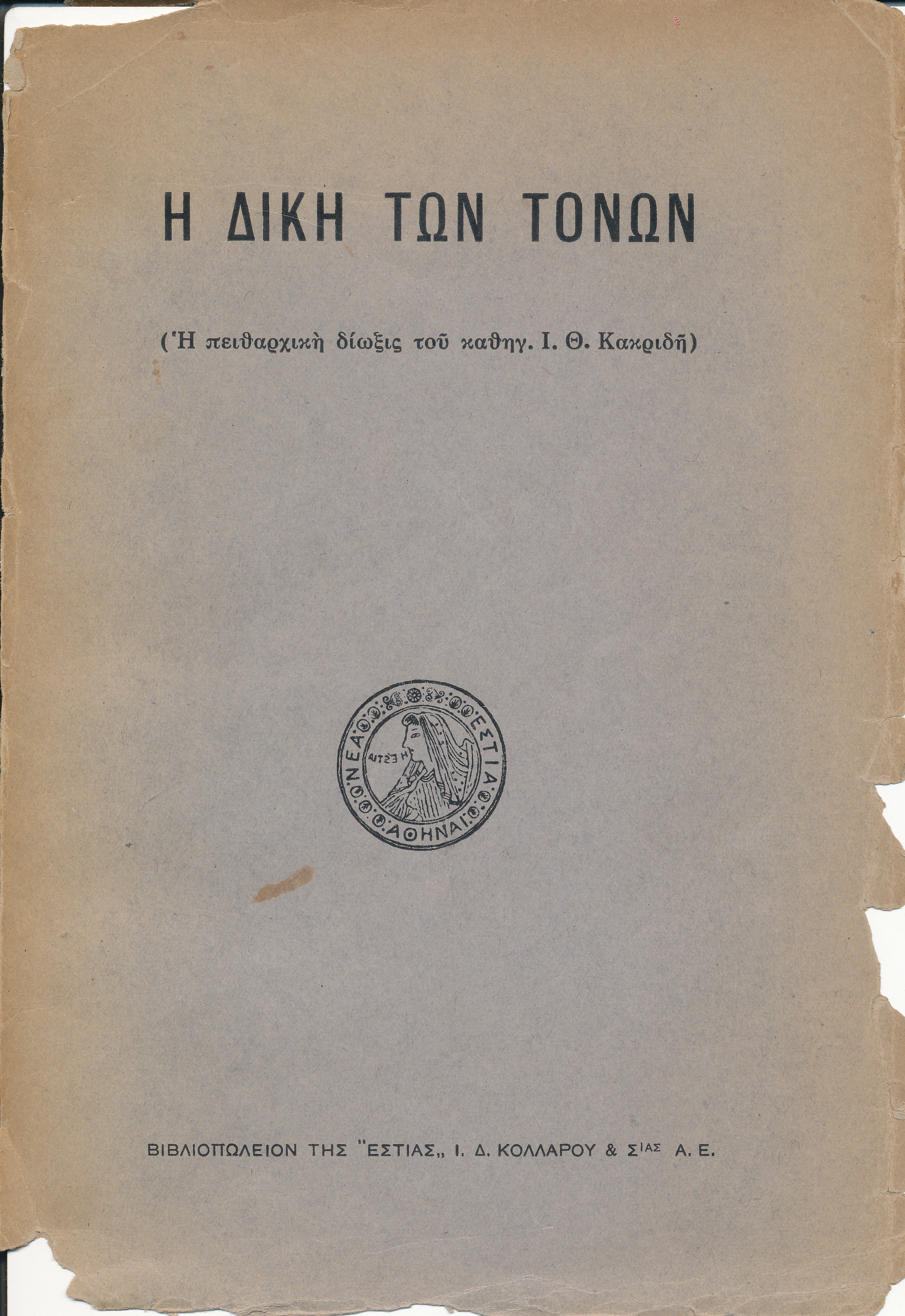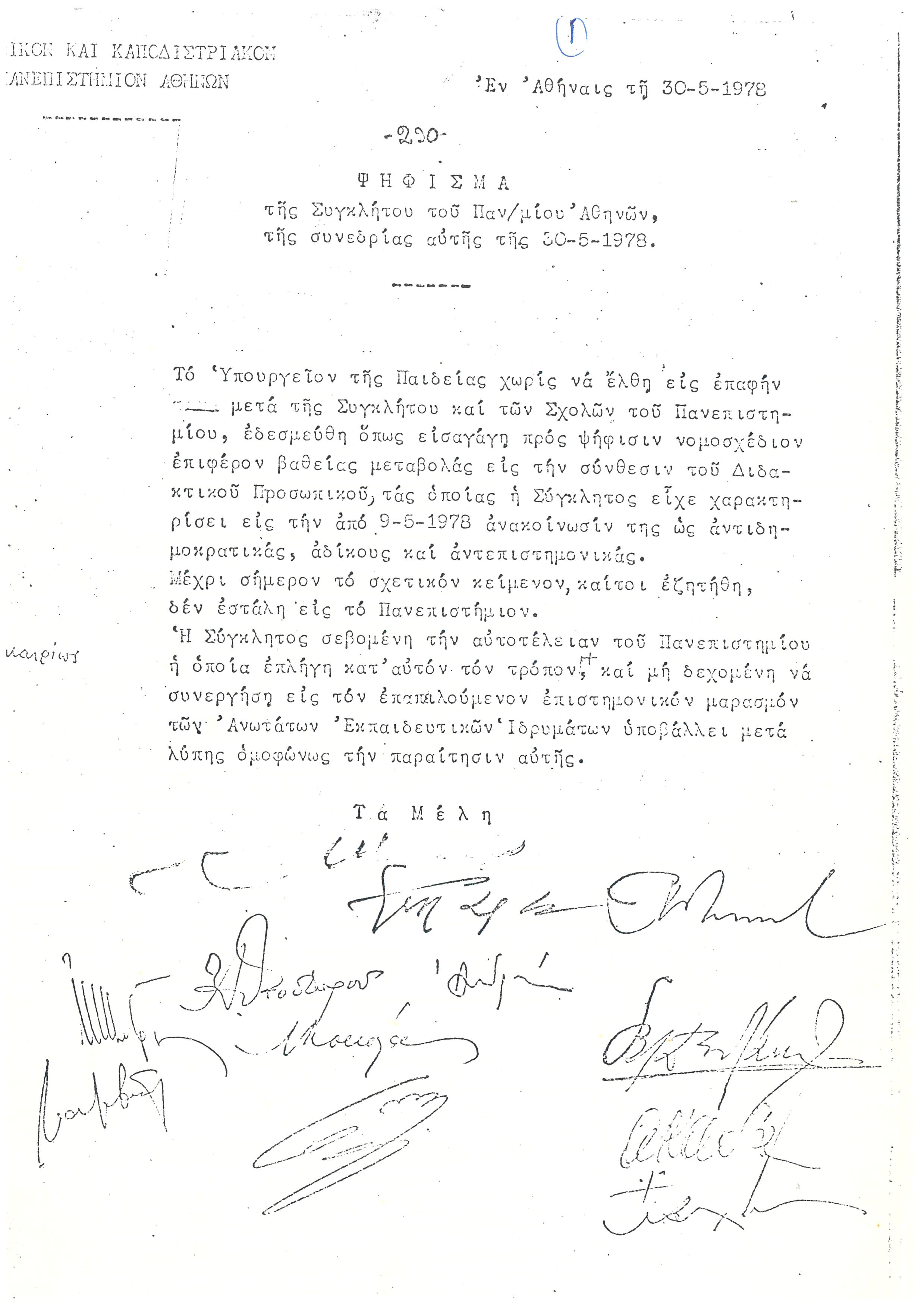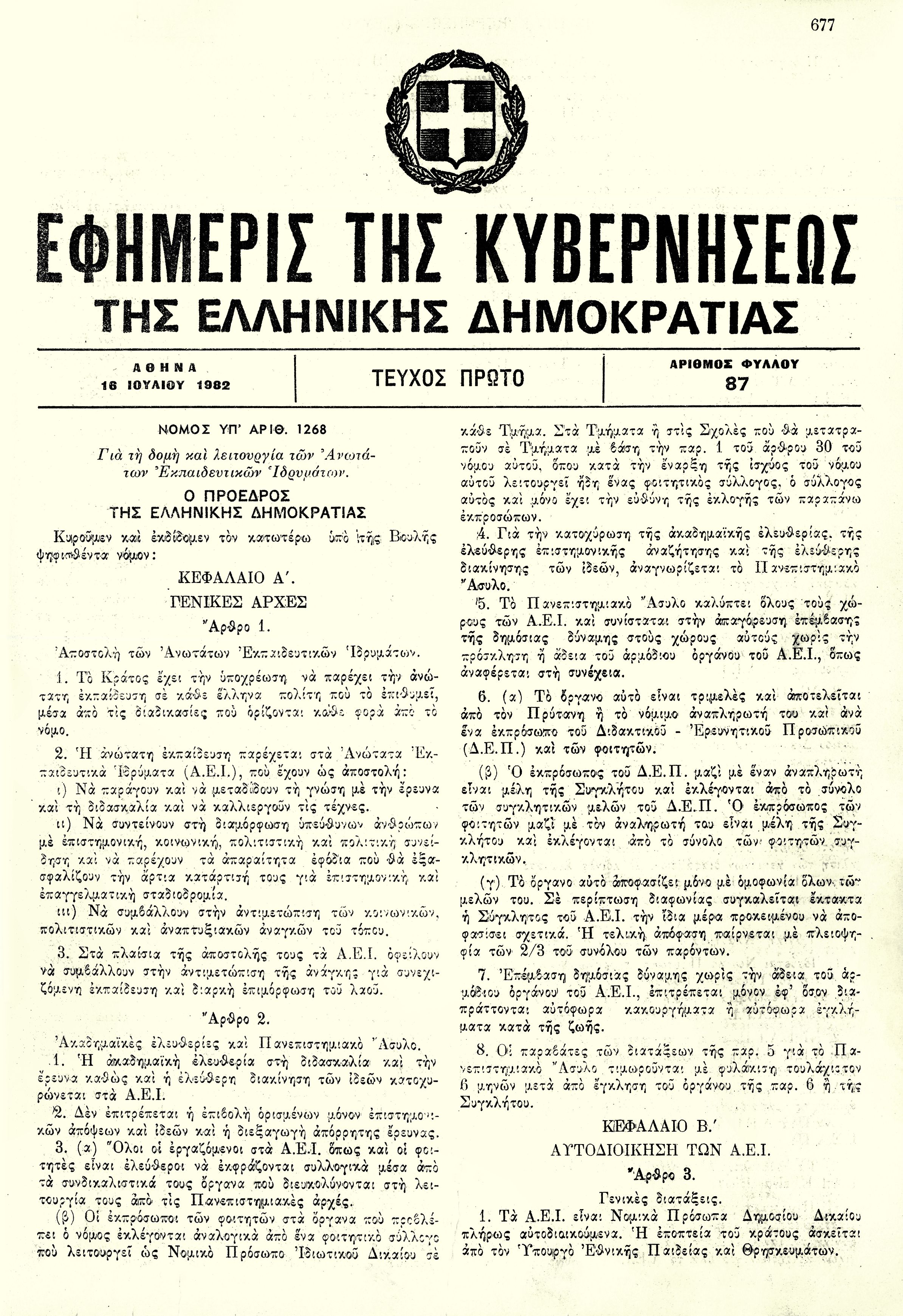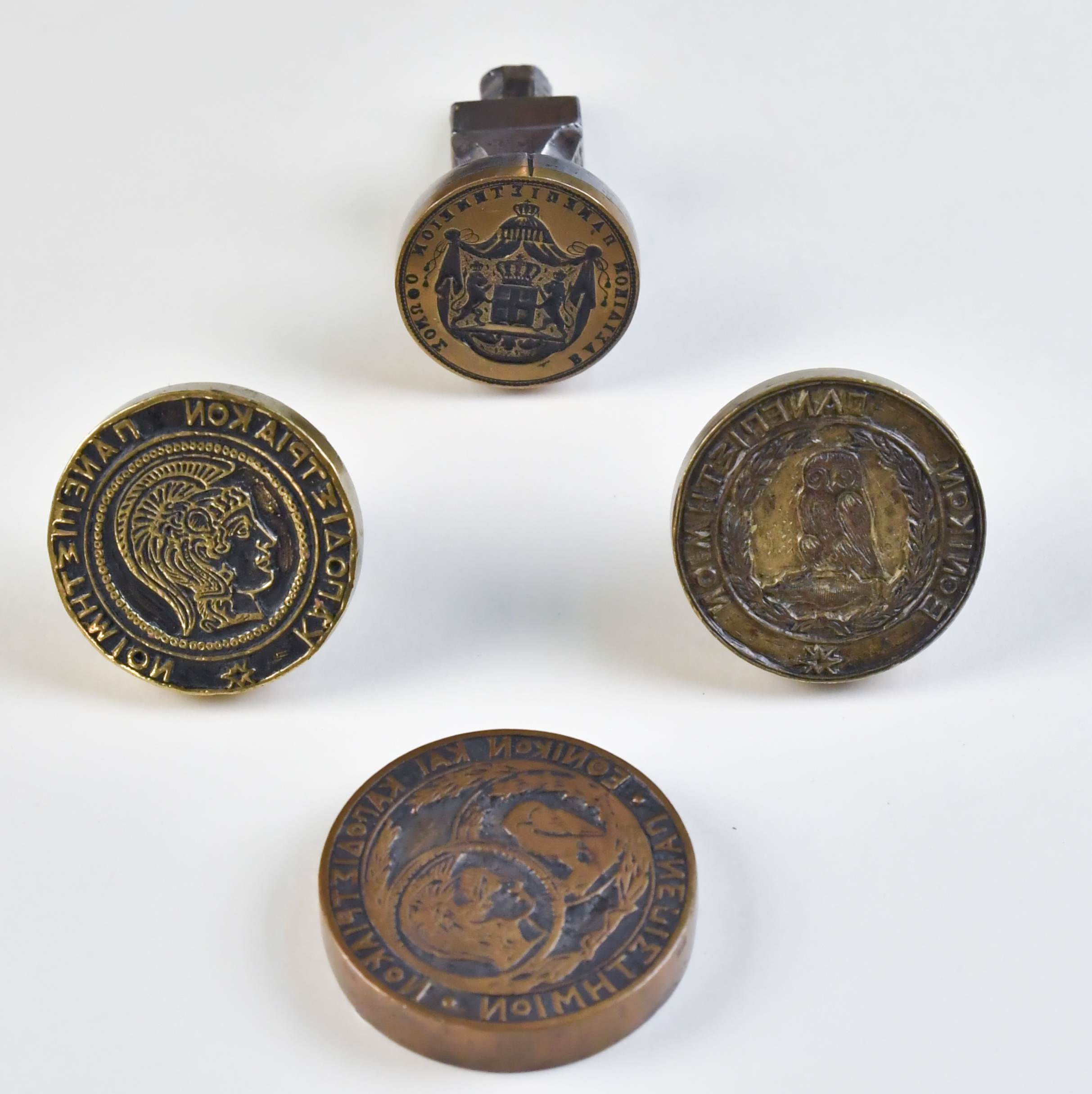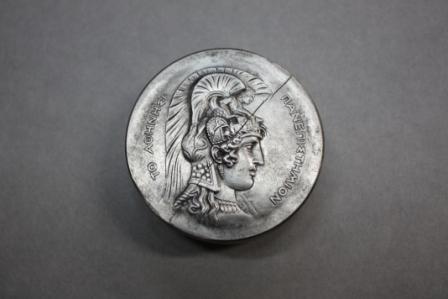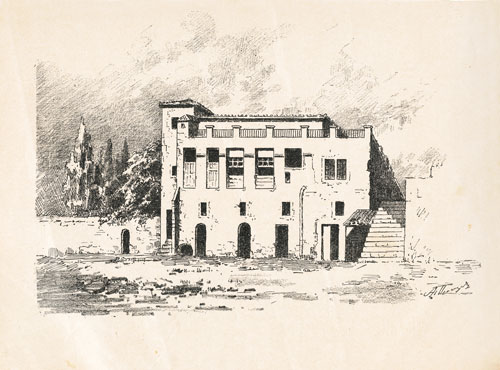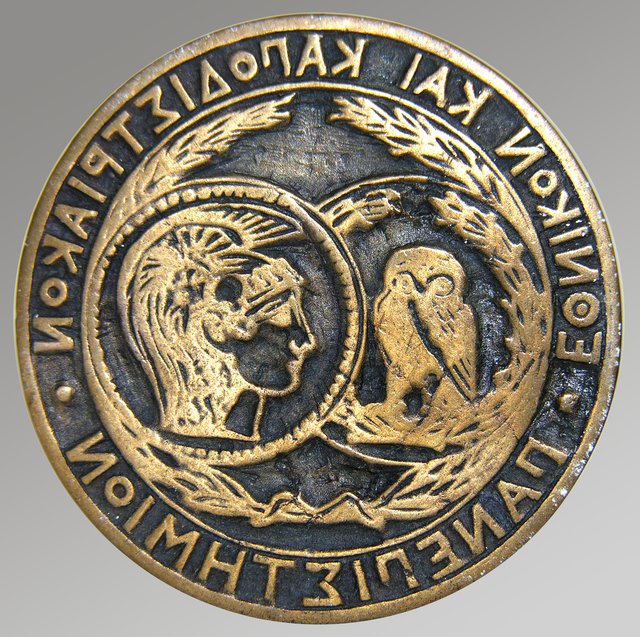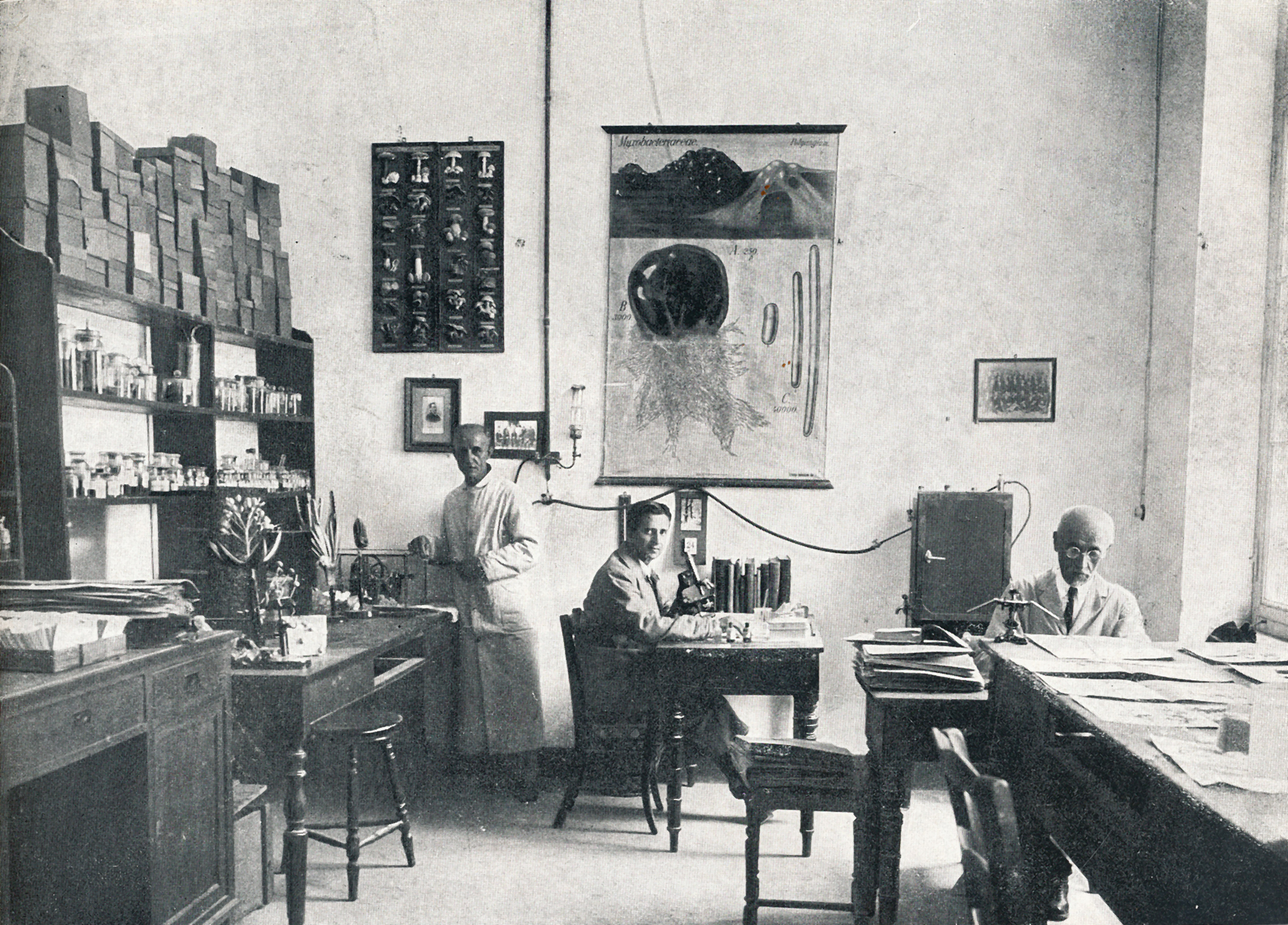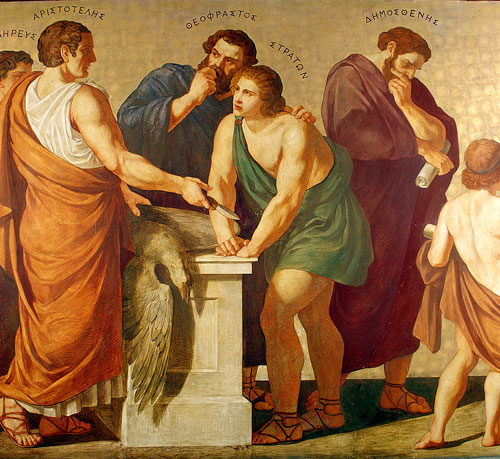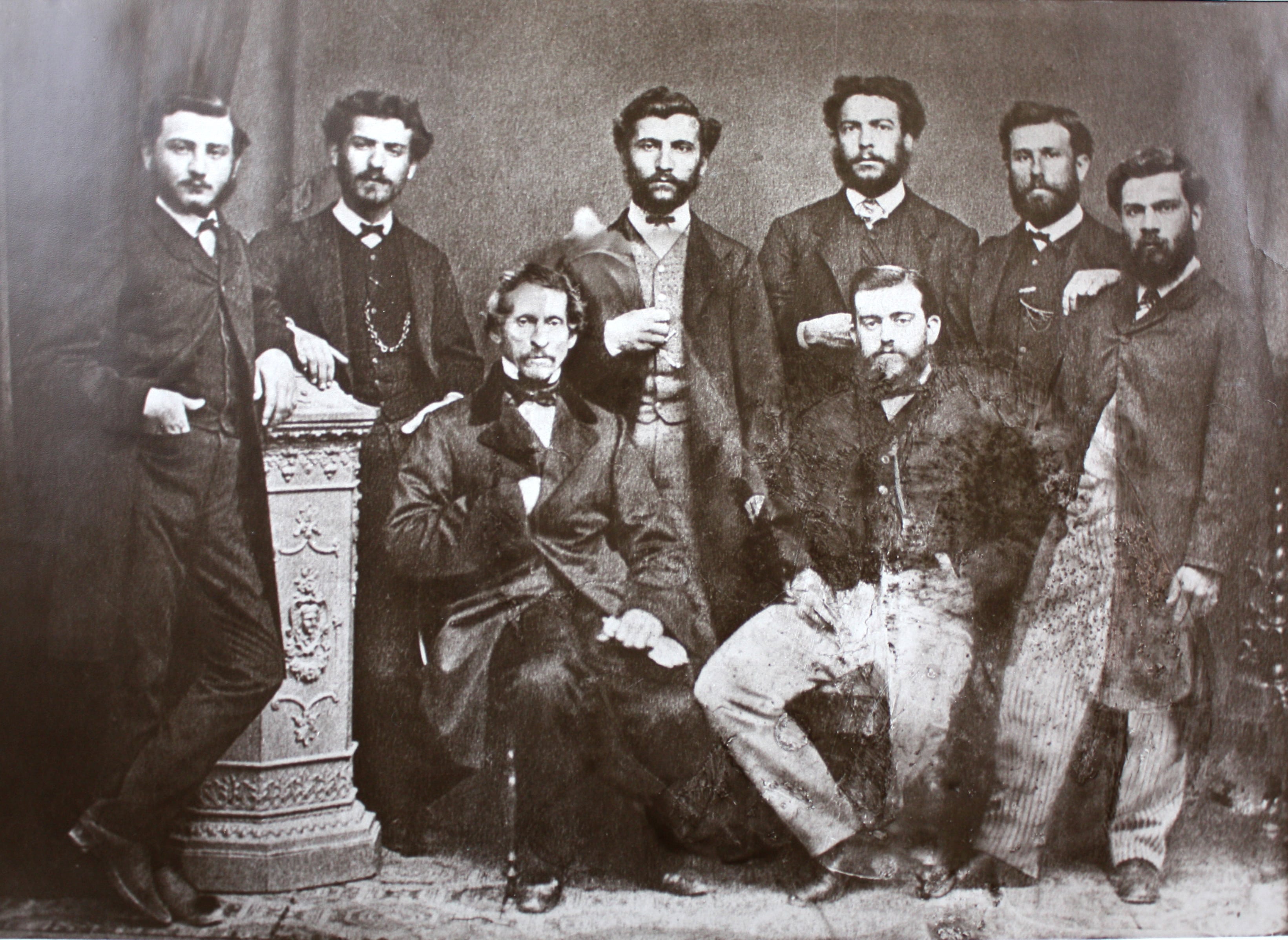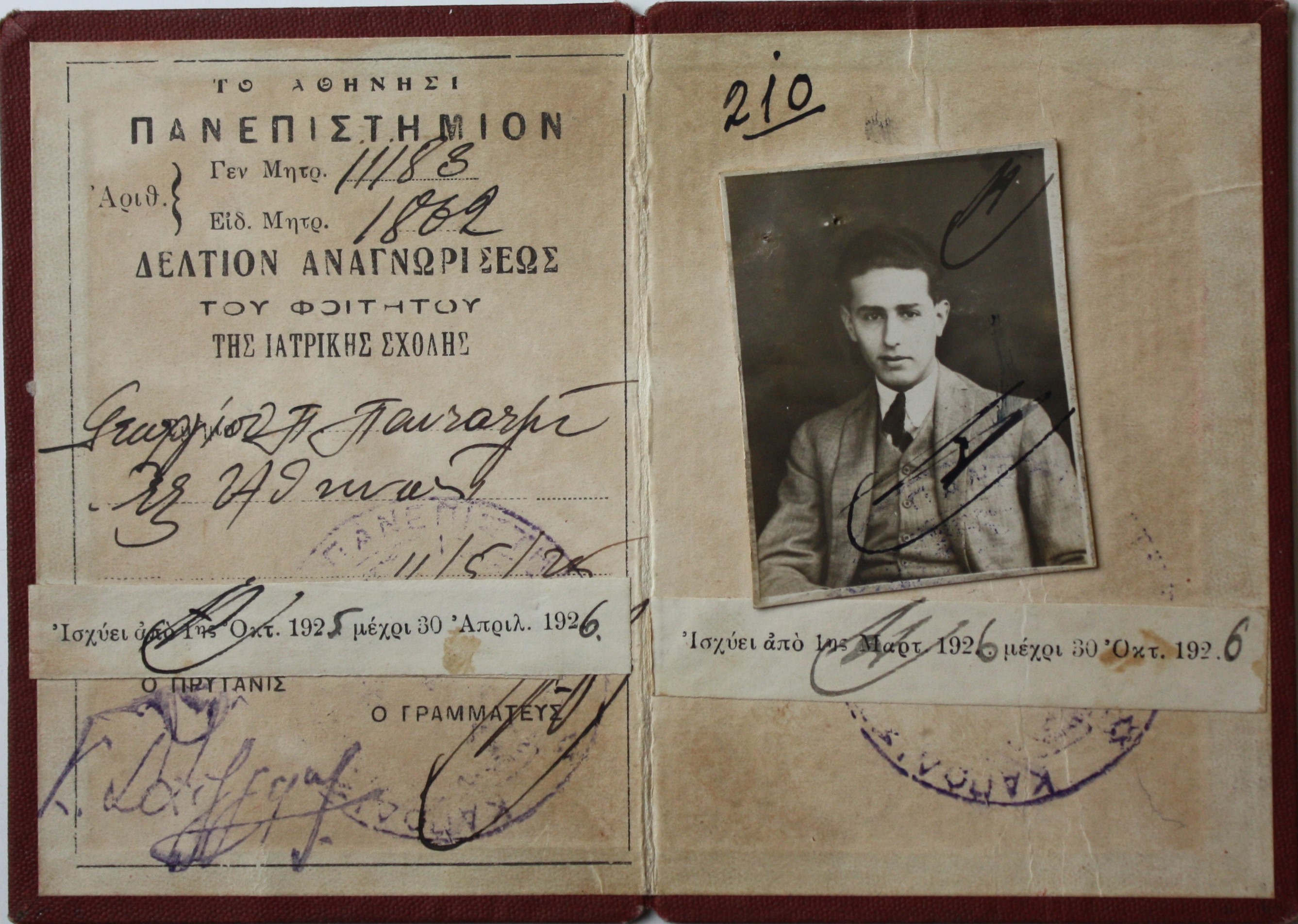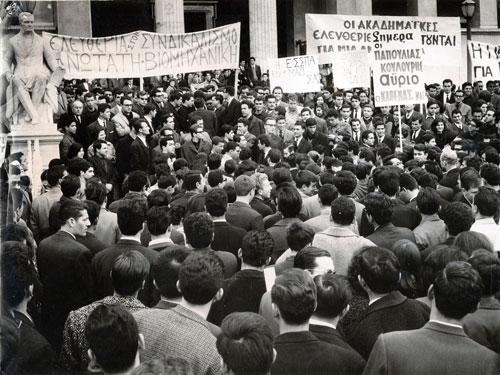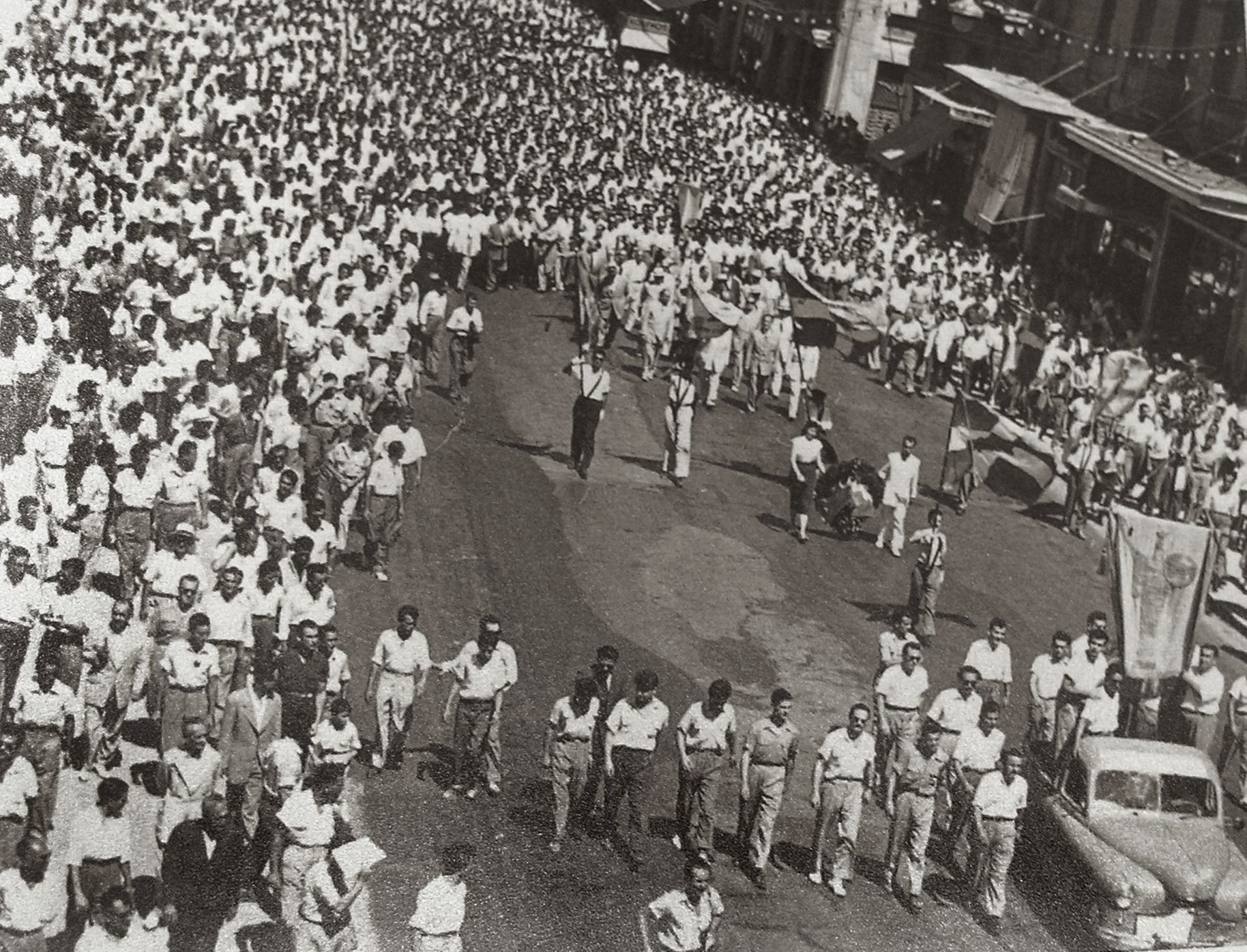From the first moment of its establishment, the Othonian University provided executives for the state and the private work environment. At the same time, it was, at least until the interwar period, the fertile ground for conceiving and spreading scientific thought. It contributed decisively in defining and structuring the scientific fields through its curricula and the actions of its teaching staff. A central factor of social reproduction and mobility, it associated its operation with establishing public and private institutions, confronting diverse social needs, executing state functions. In the context of the Great Idea and the aspirations of Greek society to be liberated from the Ottoman Empire and expand the state borders, the university contributed in many ways, the most important of which was to transfer knowledge from the West to the East. It was a ground where crucial components of the dominant ideological movements were cultivated: the Great Idea, the Greek Christianity, the advocacy of katharevousa (the scholarly Greek) as an essential element of national identity, the nationalism. Its connection with the West - as reflected in the operational standards regarding the communication with other universities and the participation of its professors in the international scientific life - was yet another firm pillar of its function. Overall, it contributed decisively to shaping a comprehensive ideological and cultural identity of the populations of the Greek state.
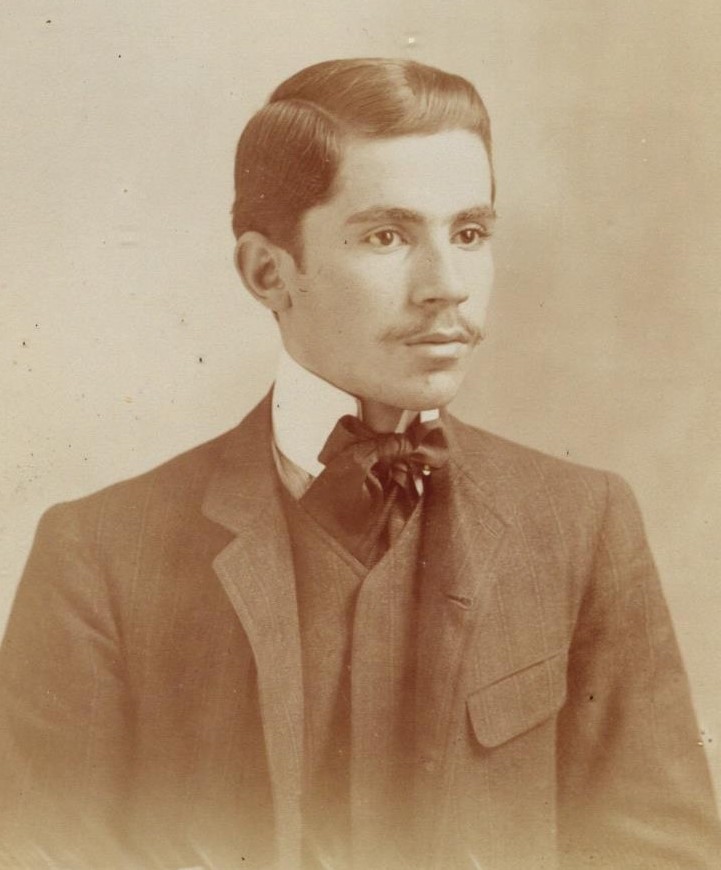
Kostas Varnalis as a student of the Philosophy School in 1902.
Athens University Historical Archive..
Georgios Sotiriadis. «He was a progressive man, if not a modernist. And what was the fieriest issue, the most important and most national in the time? The issue of the language. Sotiriadis, as a high-spirited man, joined the progressive bloc along with Politis, Lambros, and Tsountas. And he not only took a stand within the bloc, but he participated in the battle. He translated Krumbacher's History of Byzantine Literature, which the linguists regarded as aggravating the academic classicism and supporting the struggle of the vulgarists. And when his translation of Oresteia was performed at the "Royal Theatre," Mistriotis gave the signal for a sweeping attack. The students protested the desecration of the Aeschylean text. The demonstrators arrived outside the theater one evening (November 8, 1903) to burn it down. A clash with the army resulted in the death of two demonstrators. This is the famous "Oresteiaka," which marks a sad day in the history of modern Greek intellect, along with the "Evangelicals" of 1909.
Older people still remember the turmoil amidst the younger generation outside the Propylaea of the University.»
Kostas Varnalis, Leaflet of the Occupation, Chronicles, Selection-Editing By Giorgos Zevelakis, Kastaniotis Publications, Athens 2007, pp. 288-289.
Portrait of Georgios Rallis (1804-1883), Scholarch (Dean) of the Law School, work by Spyridon Prosalentis, 1884.
Athens University History Museum.
Portrait of Anastasios [Georgiadis] Lefkia (1773 – 1853), Scholarch (Dean) of the Medical School, work by Dionysios Tsokos, 1853.
Athens University History Museum.
Portrait of Misael Apostolidis (1789 – 1862), Scholarch of the School of Theology, work by V. Skopas [Karoumba].
Athens University History Museum.
Portrait of Neophytos Vamvas (1770-1855), Scholarch of the School of Philosophy, work by Dionysios Tsokos, 1856.
Athens University History Museum.
After the Revolution of September 3, 1843, and the signing of the Constitution, the university could elect its own member of parliament. Here we see two documents from the procedures for the election of the MP, 1844 and 1850. (1/2)
Historical Archive of the University of Athens.
After the Revolution of September 3, 1843, and the signing of the Constitution, the university could elect its own member of parliament. Here we see two documents from the procedures for the election of the MP, 1844 and 1850. (2/2)
Historical Archive of the University of Athens.
Portrait of the first Governor of Greece, Ioannis Kapodistrias (1776-1831), work by Kostas Iliadis.
Main Building of the National and Kapodistrian University of Athens.
The will of the benefactor Ioannis Dombolis includes the deposit of a sum of money to establish a second university in Greece under the name "Kapodistrian." St. Petersburg, February 4, 1849.
Wills and Donations that benefit the National University, Athens 1900.
Newsletter of the Minister of "Public Education" Epaminondas Deligeorgis to the educational institutions informing students on the ousting of Otto and the political conditions that had developed, October 15, 1862.
Historical Archive of the University of Athens.
Regulation regarding the operation of the university phalanx, 1876.
Historical Archive of the University of Athens.
Officers of the National Guard and the University Phalanx.Watercolor by Panos Aravantinos.
ΕΚΠΑ, 150 years. Catalog of the Memorabilia Exhibition 1987.
Application of a refugee student for accommodation in a university building, 1869. (1/2)
Historical Archive of the University of Athens.
Application of a refugee student for accommodation in a university building, 1869. (2/2)
Historical Archive of the University of Athens.
Tribute of the "ASTY" (CITY) magazine for the golden jubilee of the University of Athens, 1887.
University of Athens History Museum.
The first published chronicle in the context of the celebration of the University's golden jubilee. Professor Ioannis Pantazidis was responsible for its drafting, 1889.
Historical Archive of the University of Athens.
«The University and the National Idea.» A printed copy of the speech delivered by the rector Neoklis Kazazis at the University, October 27, 1902.
Historical Archives of the University of Athens.
Publication by Professor Georgios Hadjidakis on the language issue in Greece, 1903.
University of Athens History Museum.
«On the lawful defense of the National Language», article by Professor George Mistriotis concerning the language issue in the new Constitution 1911.
Historical Archive of the University of Athens.
Resolution for the celebration of the 75th anniversary of the University of Athens, 1912.
Historical Archive of the University of Athens.
A preliminary report by Konstantinos Karatheodoris on reorganizing the University of Athens, 1930.
Historical Archive of the University of Athens.
Student resolution with relevant requests concerning the new bylaw for the operation of the University, 1932. (1/3)
Historical Archive of the University of Athens.
Student resolution with relevant requests concerning the new bylaw for the operation of the University, 1932. (2/3)
Historical Archive of the University of Athens.
Student resolution with relevant requests concerning the new bylaw for the operation of the University, 1932. (3/3)
Historical Archive of the University of Athens.
Law 5343 of 1932 "On the organization of the University of Athens." The longest-serving bylaw of the University, which regulated the operation of the institution until 1982.
Library of the Hellenic Parliament.
Article on the occasion of the celebration of the centennial of the University, "Nea Estia," December 1, 1937, issue 263.
University of Athens History Museum.
Addressing King George II in the ceremony hall of the University in the context of the celebrations for the centennial of the institution, 1937.
University of Athens History Museum.
The rector Grigorios Papamichael (fourth from the right) and the professors of the University in the Propylaea, in the context of the celebrations of the institution's centennial, 1937.
University of Athens History Museum.
«The trial of the accents». Records of the disciplinary prosecution and dismissal of Ioannis Kakridis, Professor of Philology at the University of Athens (1939-1945) in 1941, due to republishing a lecture using the monotonic system (single-accent).
Historical Archive of the University of Athens.
Resolution of the resignation of the University Senate after submitting the law draft on higher education, 1978.
Historical Archive of the University of Athens.
The framework-law of 1982, which determined the modus operandi of the Higher Education Institutions, introduced regulations concerning: the participation of everyone in the administrative bodies, the student participation in academic life, abolishing the university chair, the university asylum, and more.
National Printing House.
Honorary diploma of a medal awarded to the University of Athens by the Rectorate of the Universities of Paris on the occasion of the institution's 150 years, 1987.
Athens University History Museum.
Seals «Royal Othonian University» (1837-1862), «National University» (1862-1911 & 1911-1922), «Kapodistrian University» (1911-1922), «National and Kapodistrian University» (1932 et.e.).
University of Athens History Museum.
Seal die «The Athens University» (1922-1932).
University of Athens History Museum.
Seal of the University Library, during the first historical period as the Othonian University 1837-1862.
University of Athens History Museum.


